One of the most often overlooked aspects of prepping is a fully stocked first aid kit. It seems as if nobody thinks about owning a band-aid until they get hurt.
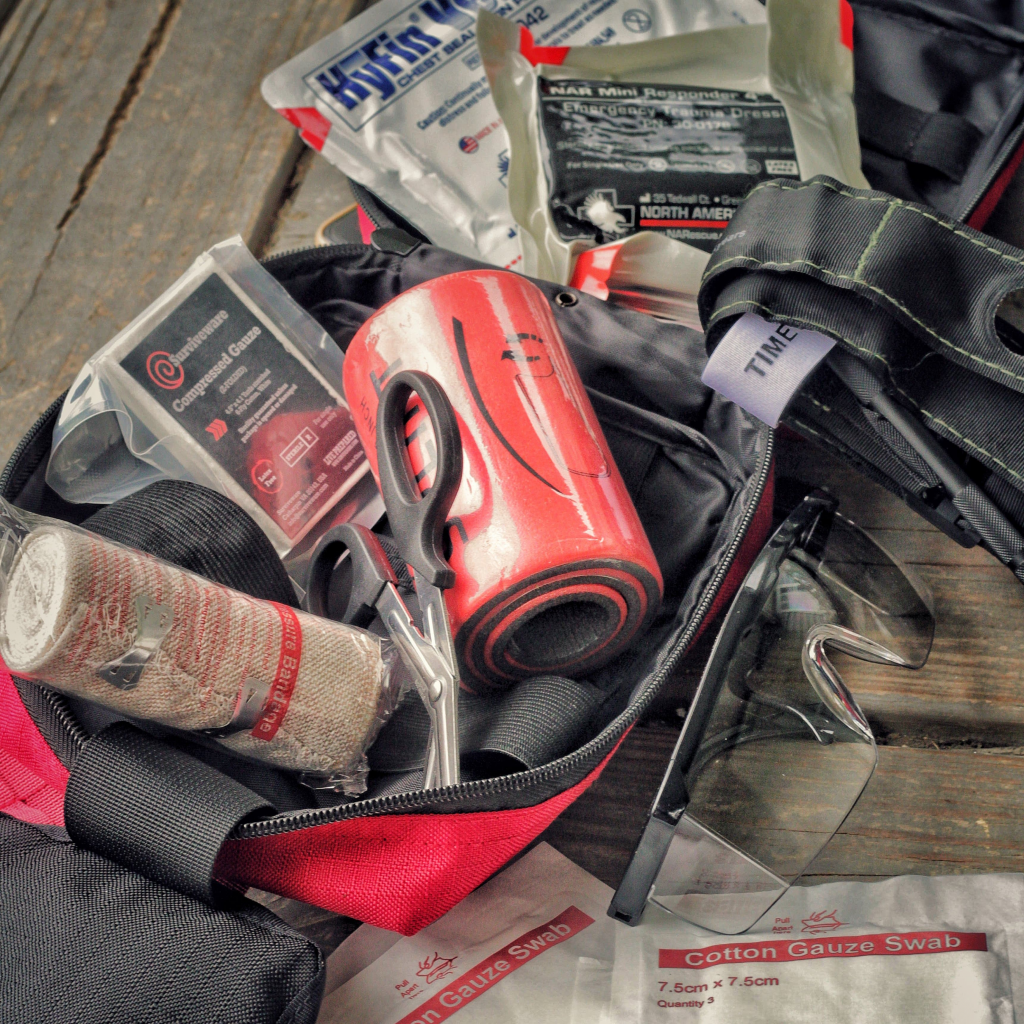
After an injury is the worst possible time to realize you don’t have the equipment you need to patch yourself up.
While there are plenty of cool kits out there pre-built and ready to roll, sometimes you can’t drop the $100+ to own one.
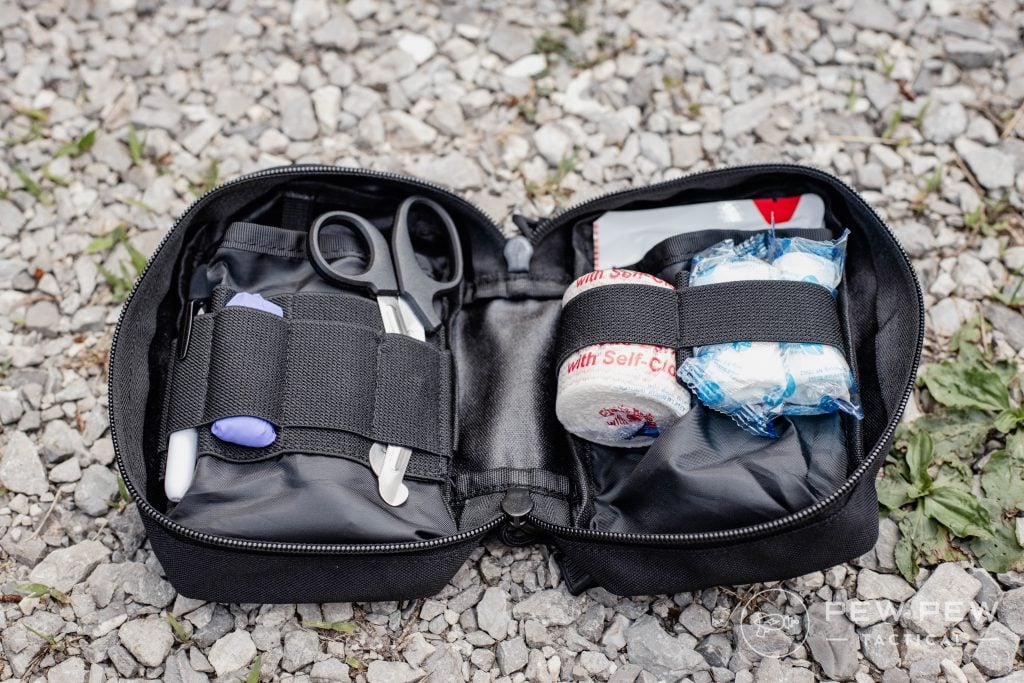
In that case, why not just build a first aid kit? Building your own kit means you can tailor it to your lifestyle, and it allows you to treat a majority of first aid issues with minimal investment.
But where do you start in creating a first aid kit?
Well, we’re here to help. We’re going to show you how to build two of these kits for the locations you need them most — your vehicle and home.
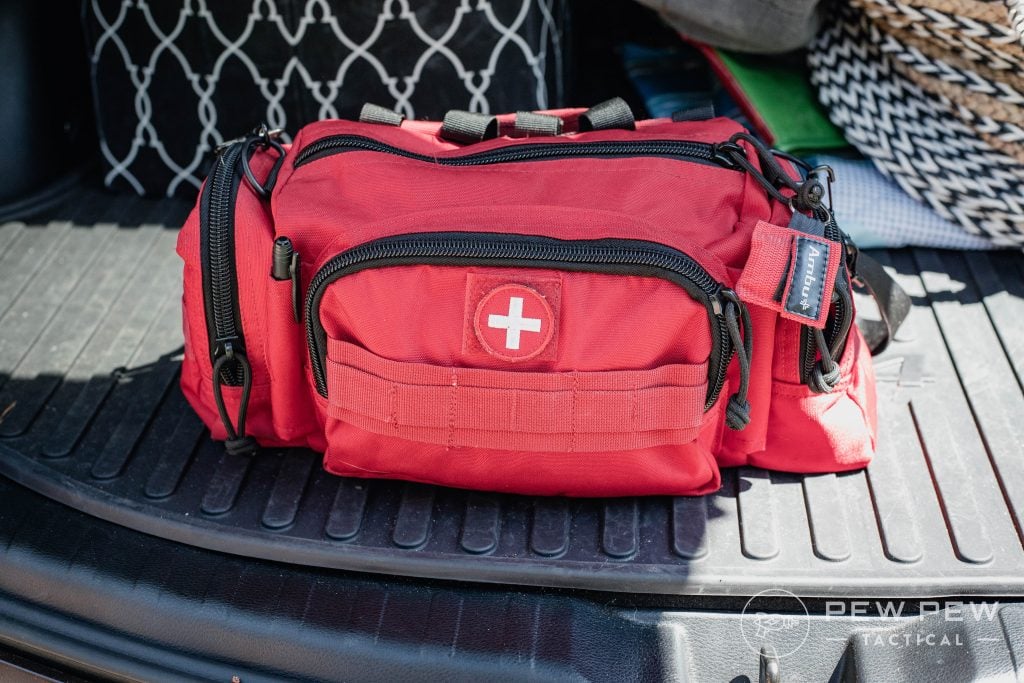
In addition to explaining what you want to purchase, we’ll walk you through why you need certain items and what other ideas you may want to consider.
So, with that, let’s jump in!
Table of Contents
Loading…
How to Build Your Own Car First Aid Kit
Car first aid kits are one of the most practical kits you’ll create.
Whether on a trip to the beach, on a walk at the park, or if you stumble across a recent car accident, this will be the kit that will most likely be closest at hand.
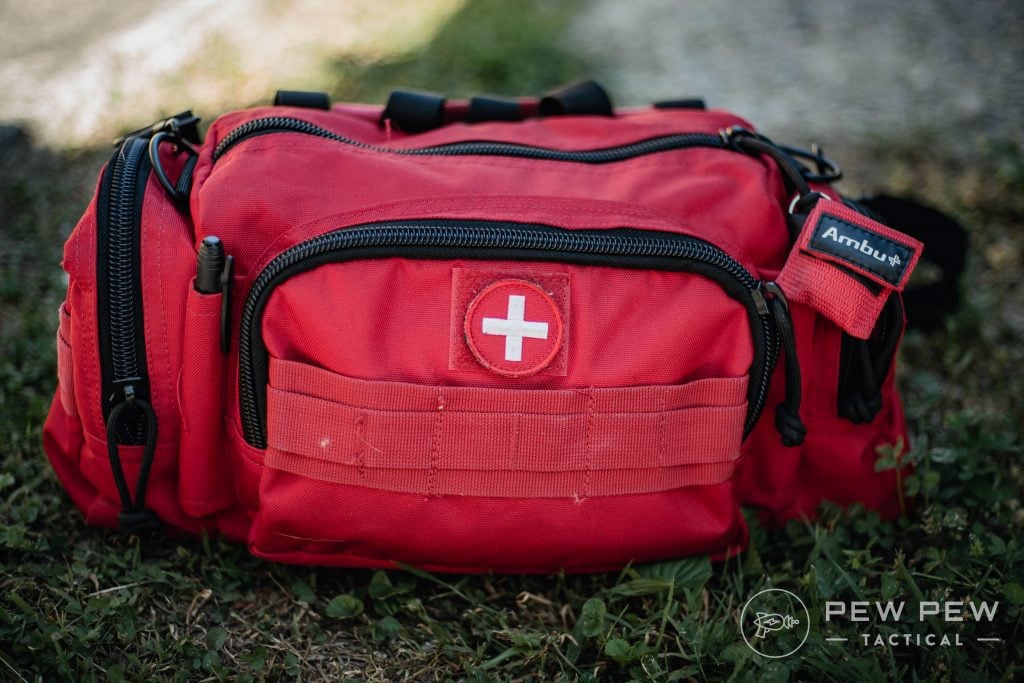
In my opinion, a car first aid kit helps patch somebody up until I can get back to the house (where my big kit resides) or until EMS arrives.
Because of this mindset, I don’t carry comprehensive kits in my vehicles.
I also try to carry things that won’t be damaged by heat.
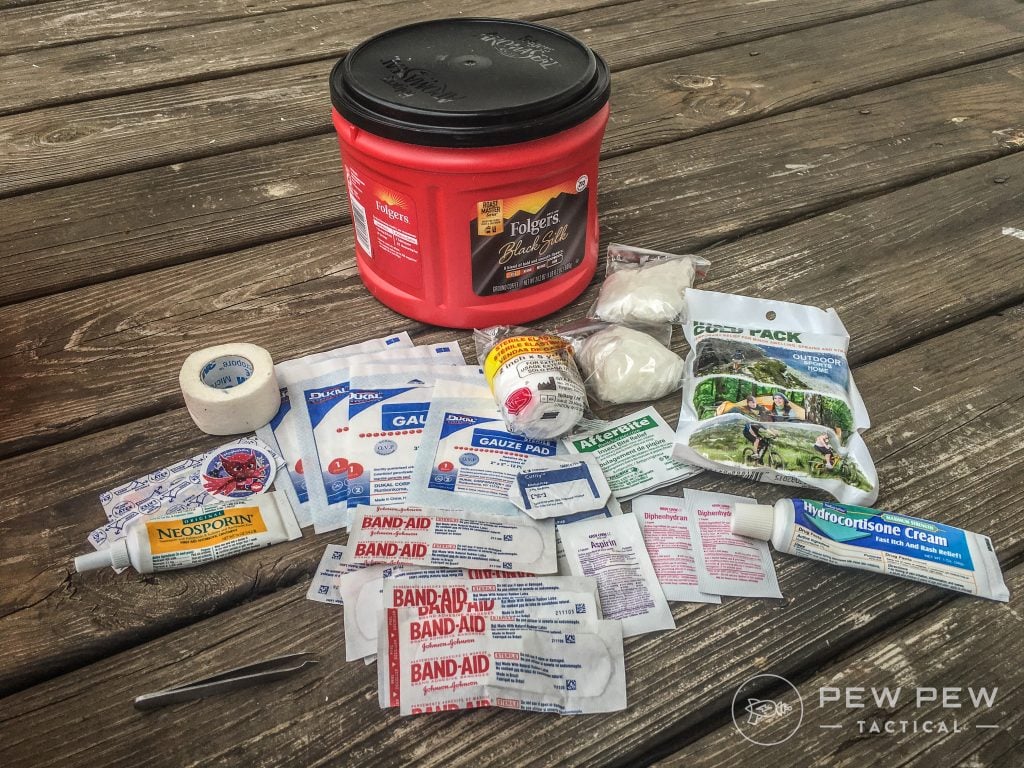
The inside of a car can get hot, which quickly leads to medication degradation if you don’t keep an eye on them. So, I only carry pills/tablets within my vehicle (no liquids).
So, what things work well in a car kit?
Let’s run through it.
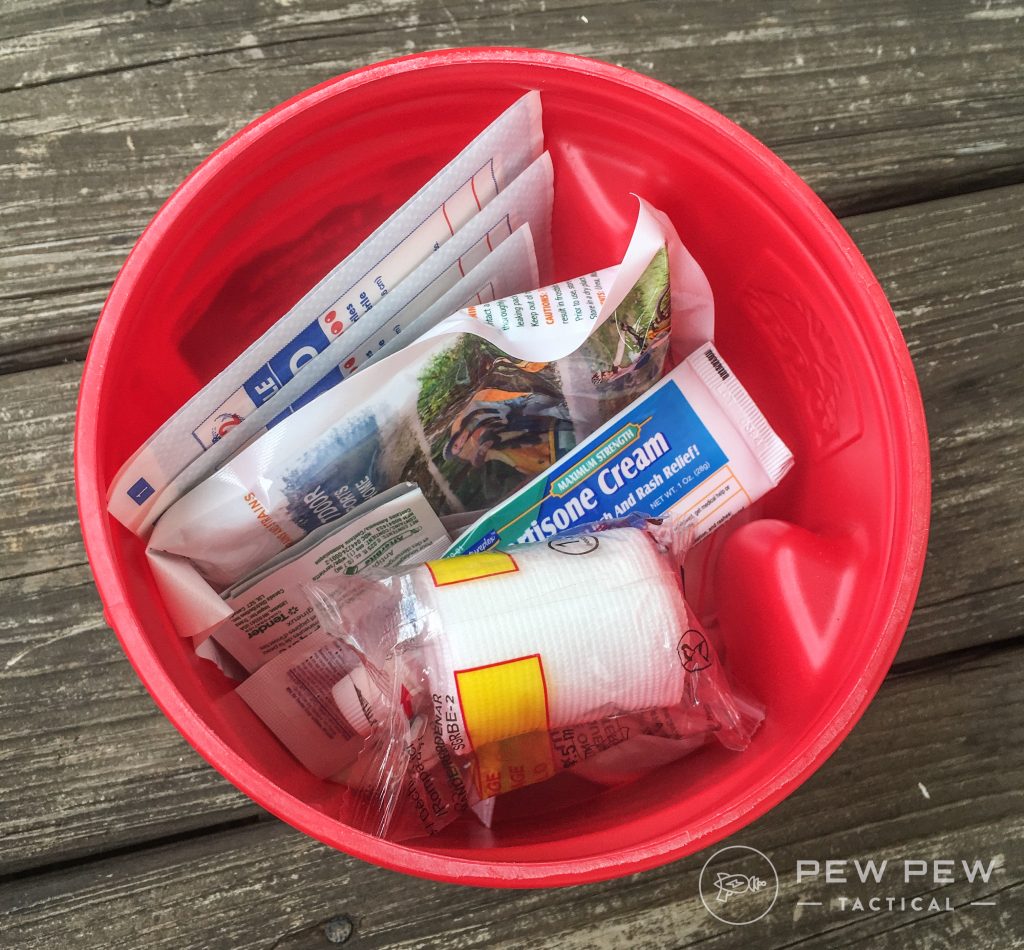
1. Gloves
A pair of gloves is a must!
Let’s say you witness a pretty nasty collision at an intersection.
Somebody’s bound to have a broken nose, which means there’s going to be blood everywhere.
And if you don’t know this person, you don’t know what they may have floating around in their bloodstream.
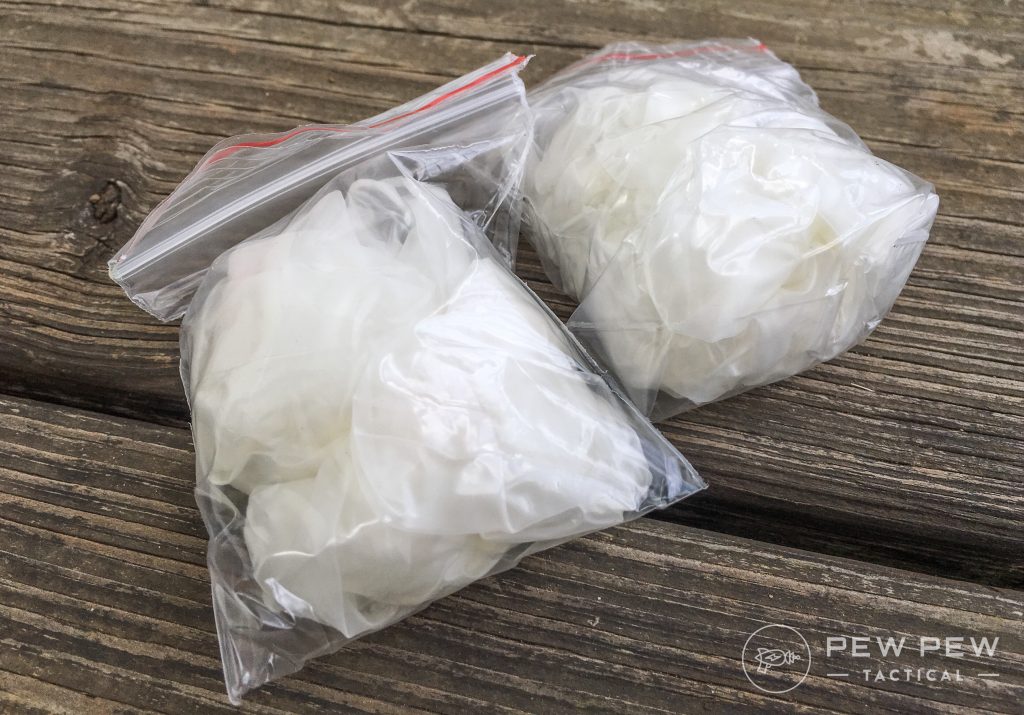
It’s always best to assume that they do have something, and consequentially, it’s always a wise idea to have the means to keep you (and indirectly, your family) safe while rendering first aid.
The best way to do this is with gloves.
With these on your hands, you’ll be able to help the injured while minimizing your risk of infection with a blood-borne agent.
Prices accurate at time of writing
Prices accurate at time of writing
-
25% off all OAKLEY products - OAKLEY25
Copied! Visit Merchant
2. Benadryl Tablets
I try to keep Benadryl tablets on hand at all times. A car first aid kit provides the perfect place to stash a few.
These are useful if I come across somebody suffering from an allergic reaction – and if they don’t have their own Epi-Pen.
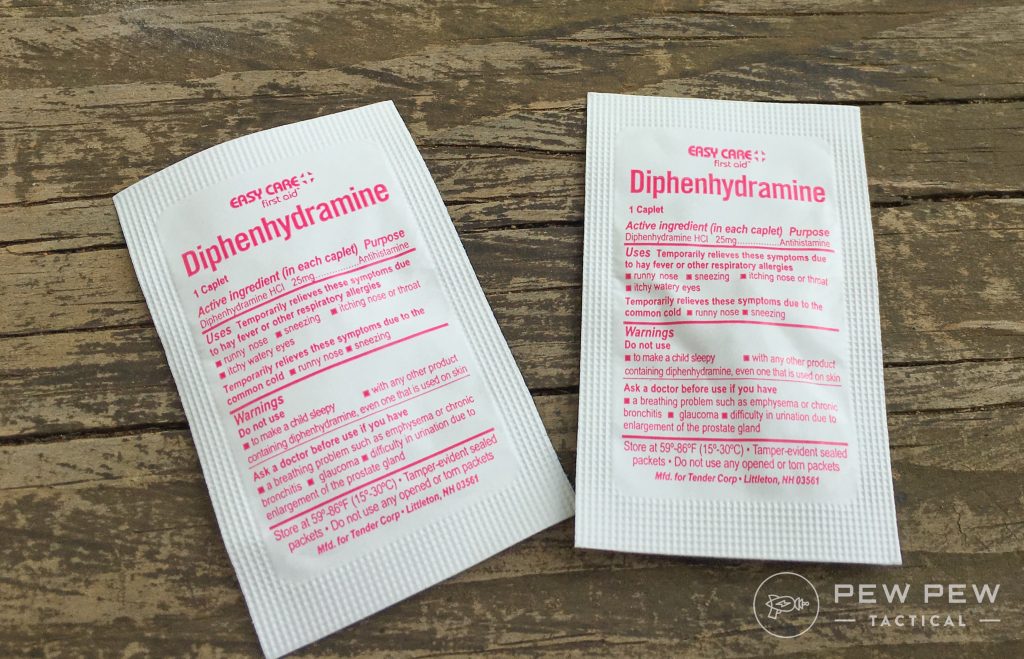
They still need professional medical attention, but this can help delay/diminish the allergic reaction in the meantime.
Benadryl’s liquid form isn’t as portable or convenient to carry as the tablets – not to mention, it’s a sticky mess if Benadryl liquid leaks. Tablets are a way to carry the medicine without the hassle.
-
25% off all OAKLEY products - OAKLEY25
Copied! Visit Merchant
3. Aspirin
I used to work within cardiology and had heart attack stories for days.
Whether it was out on the basketball court, playing at the park with the dog, or on a hike, people have heart attacks in some of the worst scenarios possible — the middle of an intense game of charades, anyone…

When you call 911 with a possible heart attack, the dispatcher will often ask if you have an aspirin nearby.
Why?
Because aspirin acts as a mild blood thinner.
If there’s a blockage in your heart, this means it can help the blood get through the blockage, keeping you alive until help arrives.
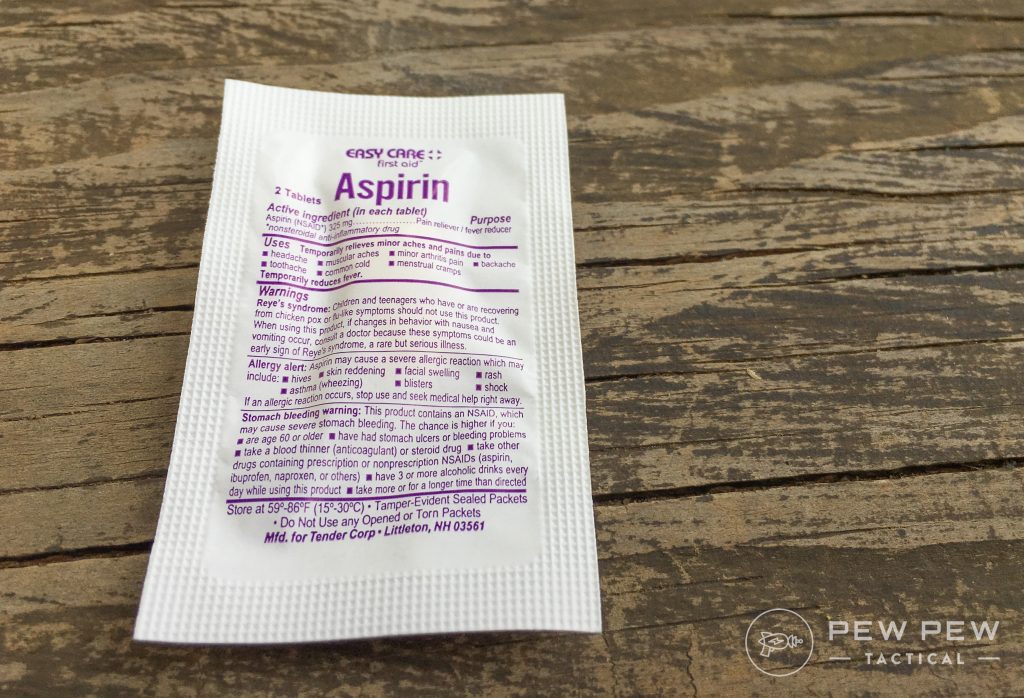
Think of it like pouring maple syrup down a little funnel versus pouring Gatorade. The thinner fluid will flow through easier.
While not a perfect analogy, aspirin causes blood to behave somewhat the same.
Aspirin works as a form of pain relief as well, so if you end up with achy muscles or some other type of injury, this takes the edge off until you get home.
And if you’re looking for even further benefit, aspirin also functions as an anti-inflammatory.
-
25% off all OAKLEY products - OAKLEY25
Copied! Visit Merchant
4. Band-Aids
This is a given, right?
You’re more likely to end up with some type of cut or abrasion while you’re out than you are just about anything else.
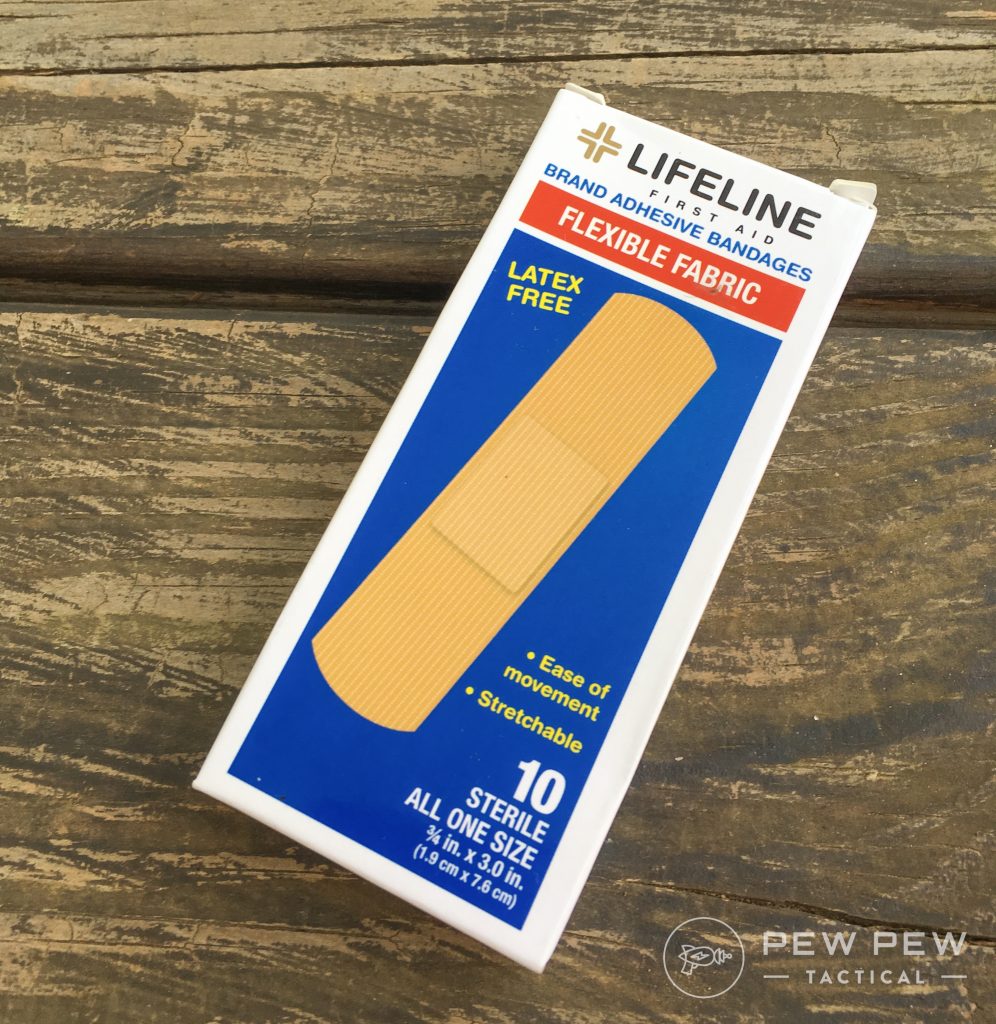
Band-aids are one of the best ways to ensure that you can keep the injury clean and covered up from the outside environment.
I keep a variety of sizes and styles within my kit at all times. And I also stock my kit with kid-friendly designs.
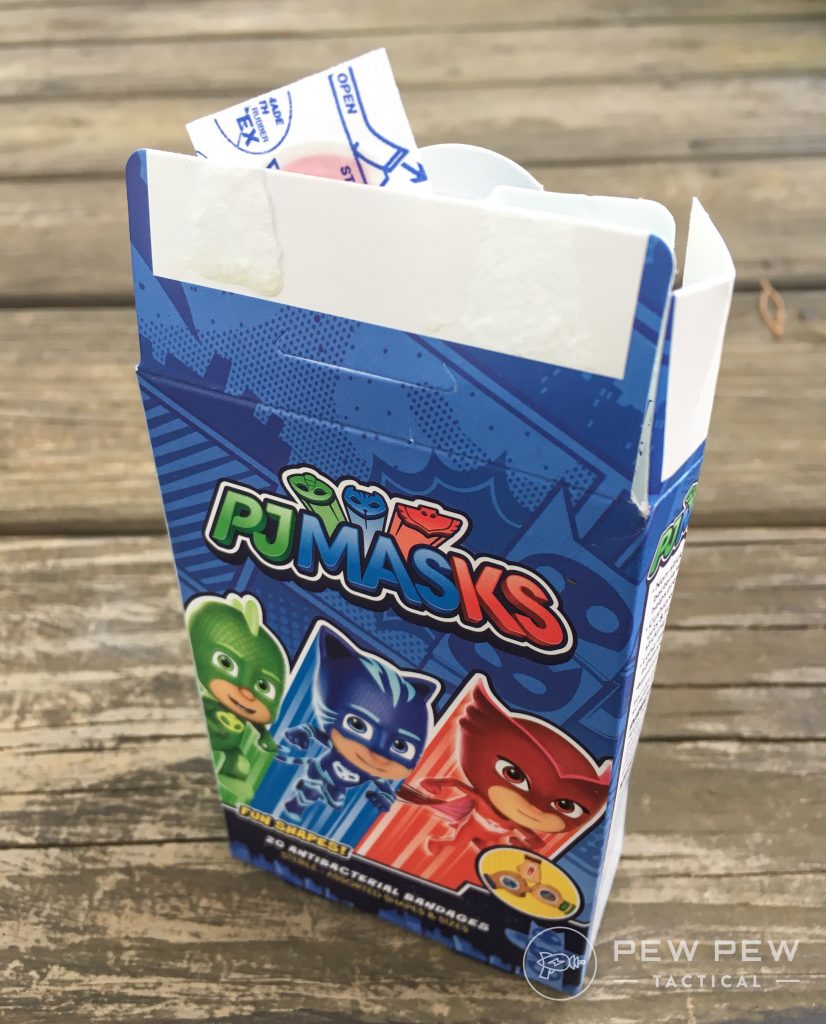
Tolerating a boring band-aid when you know there are Batman ones in the world adds insult to injury as a kid, am I right?
-
25% off all OAKLEY products - OAKLEY25
Copied! Visit Merchant
5. Itch Relief Wipes & Sting Relief
If you end up getting eaten alive by mosquitoes, you can start to feel the itch rather quickly.
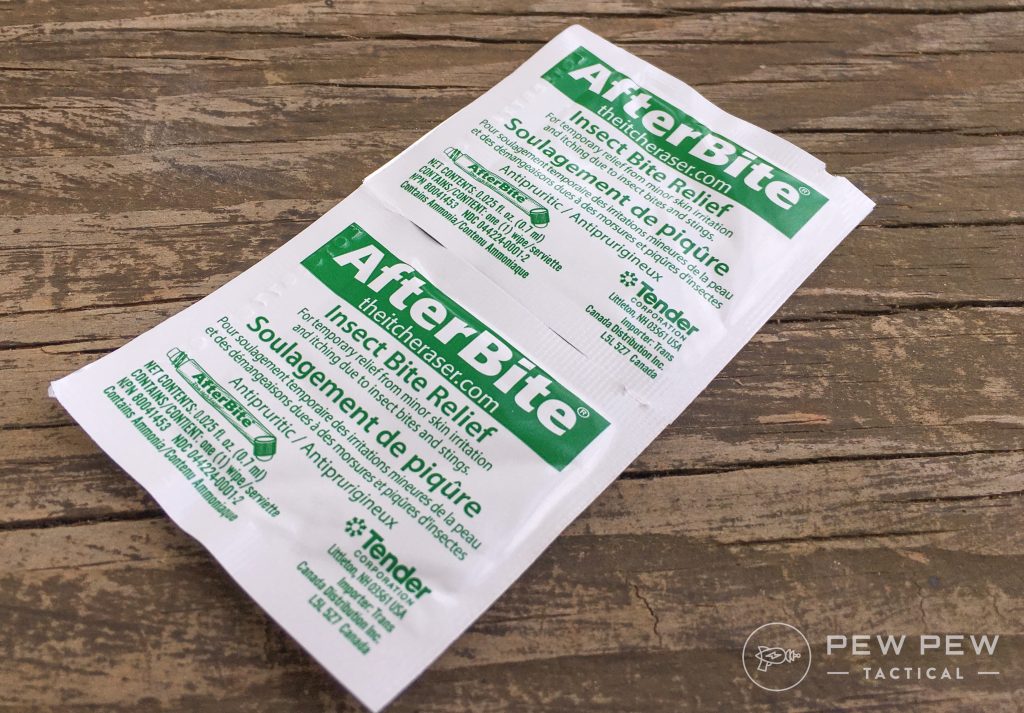
As things start to grow unbearable, I use itch relief wipes. These help me enjoy the rest of the day until I can get home.
-
25% off all OAKLEY products - OAKLEY25
Copied! Visit Merchant
Wasps, hornets, and yellow jackets suck. I don’t like them one bit. They’re mean little boogers whose sting can be nasty.
While you can probably tolerate the pain of one sting alright, if you end up walking through a nest of yellow jackets, you’re going to want something to help with the pain.

This is where a sting relief medication proves useful.
I particularly like the idea of helping help the horde of little kids in my family if they get stung while at the park.
Pain is hard to tolerate as a three-year-old. So, having sting relief wipes makes things just a little bit better for those little boogers.
-
25% off all OAKLEY products - OAKLEY25
Copied! Visit Merchant
6. Neosporin
I carry the little travel tubes of Neosporin because it’s an excellent form of anti-germ (yes, I made up that term myself) that will keep cuts/abrasions from getting infected.
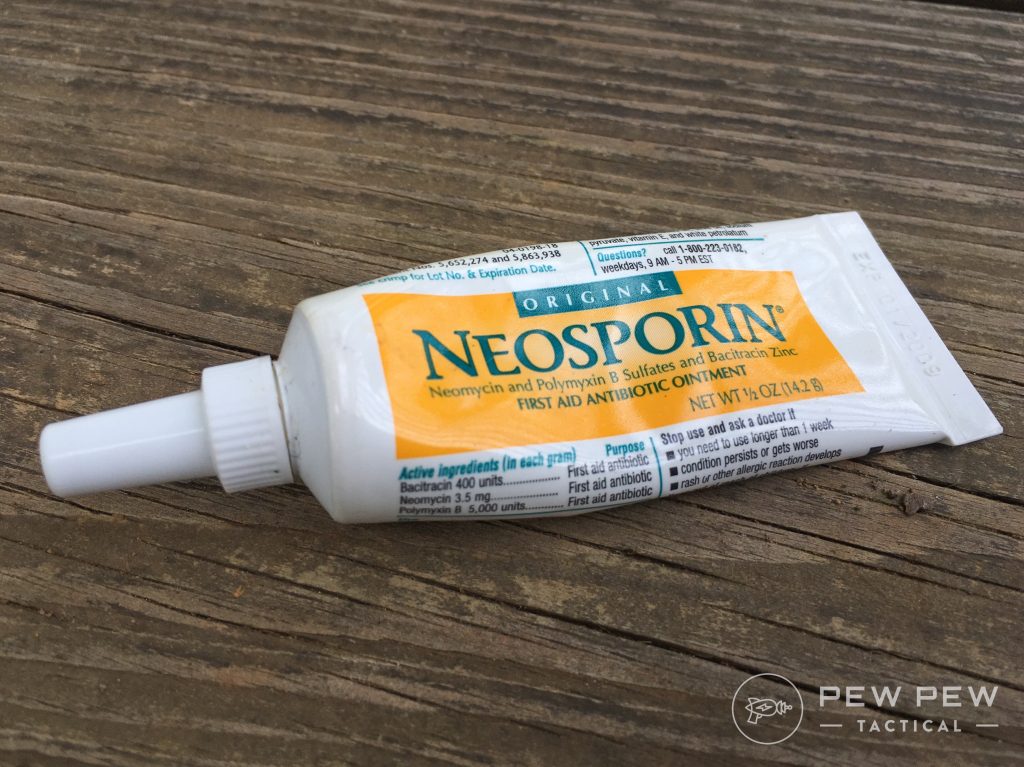
As a parent with kids that manage to cut themselves or skin their knees just about every time we go anywhere in my family, this is a good item to keep on hand.
-
25% off all OAKLEY products - OAKLEY25
Copied! Visit Merchant
7. Tweezers
I mainly keep these in this kit to remove bee stingers, ticks, splinters, and slivers.
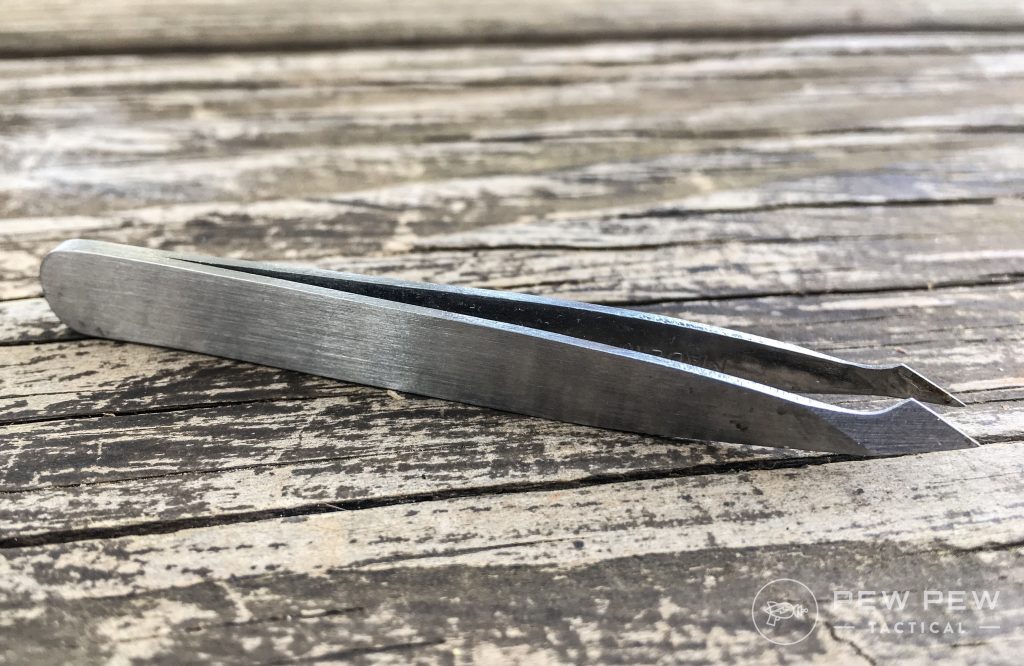
All of those are a complete pain to attempt to remove with just your fingers, and tweezers can do the job in a flash.
I consider them essential for any first aid kit out there.
Prices accurate at time of writing
Prices accurate at time of writing
-
25% off all OAKLEY products - OAKLEY25
Copied! Visit Merchant
8. Gauze
If you end up with a bigger injury that band-aids can’t handle, gauze pads often do the trick.
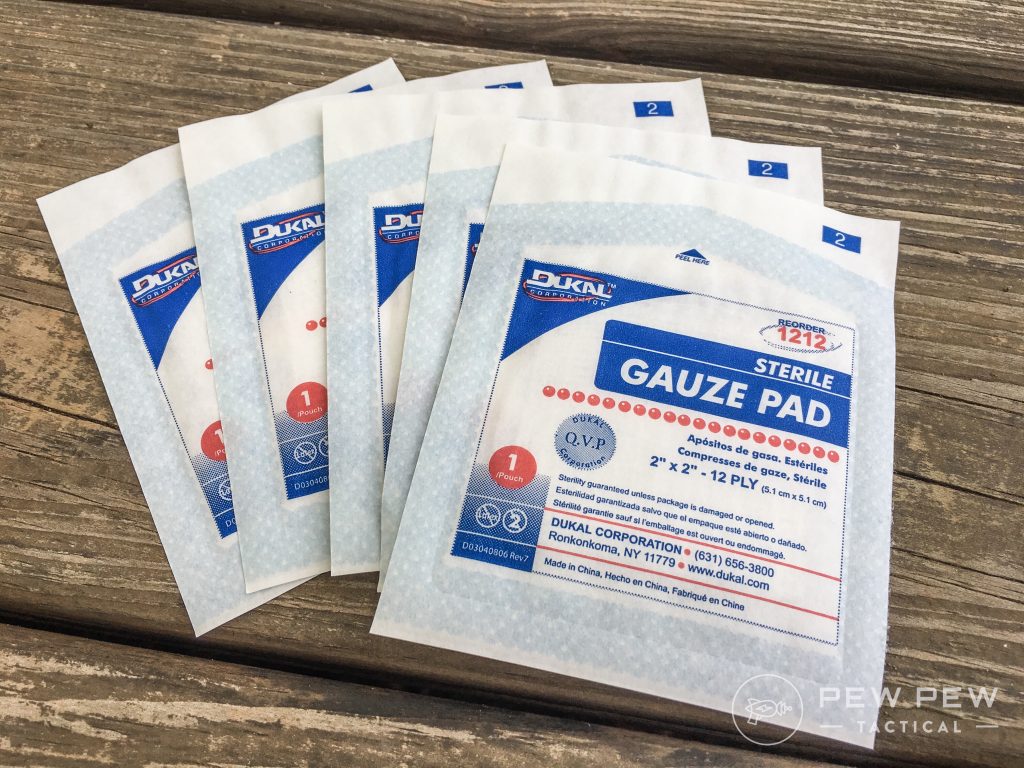
We used it to apply pressure to a wound at work – simply layer on patch after patch until the bleeding stops.
These are cheap, lightweight, and very useful, so you may as well carry some in this kit.
-
25% off all OAKLEY products - OAKLEY25
Copied! Visit Merchant
9. Medical Tape
A good roll of medical tape can help fussy bandages, and makeshift splints stay in place.
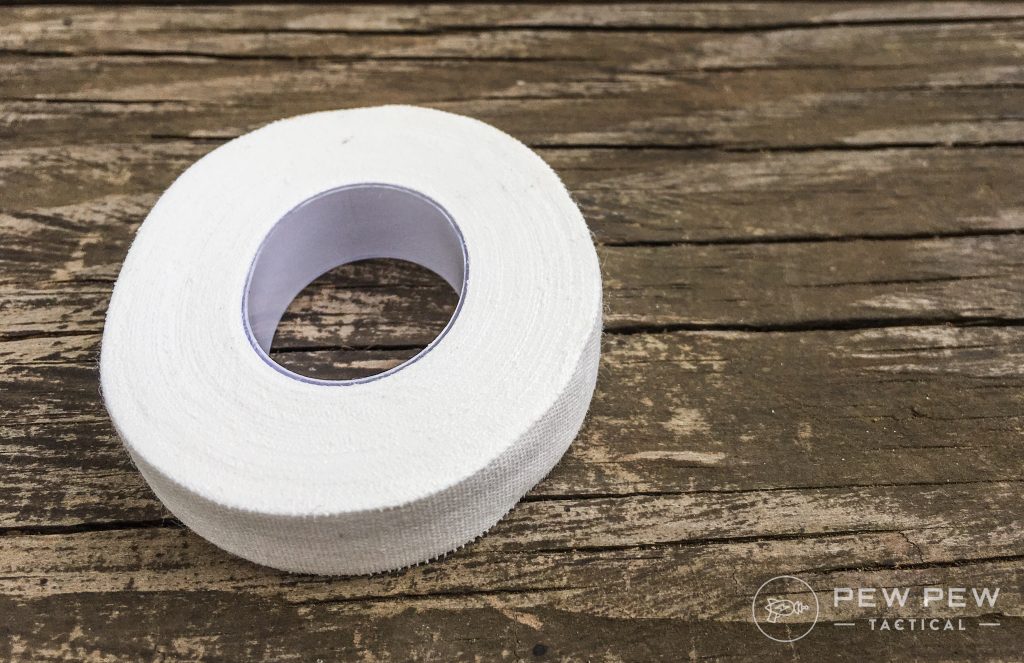
That’s really about all I use it for, but it is most certainly nice to have on hand when you need it.
Prices accurate at time of writing
Prices accurate at time of writing
-
25% off all OAKLEY products - OAKLEY25
Copied! Visit Merchant
10. Instant Ice Packs
Cold not only acts as a great pain reducer, but ice packs also help diminish swelling.
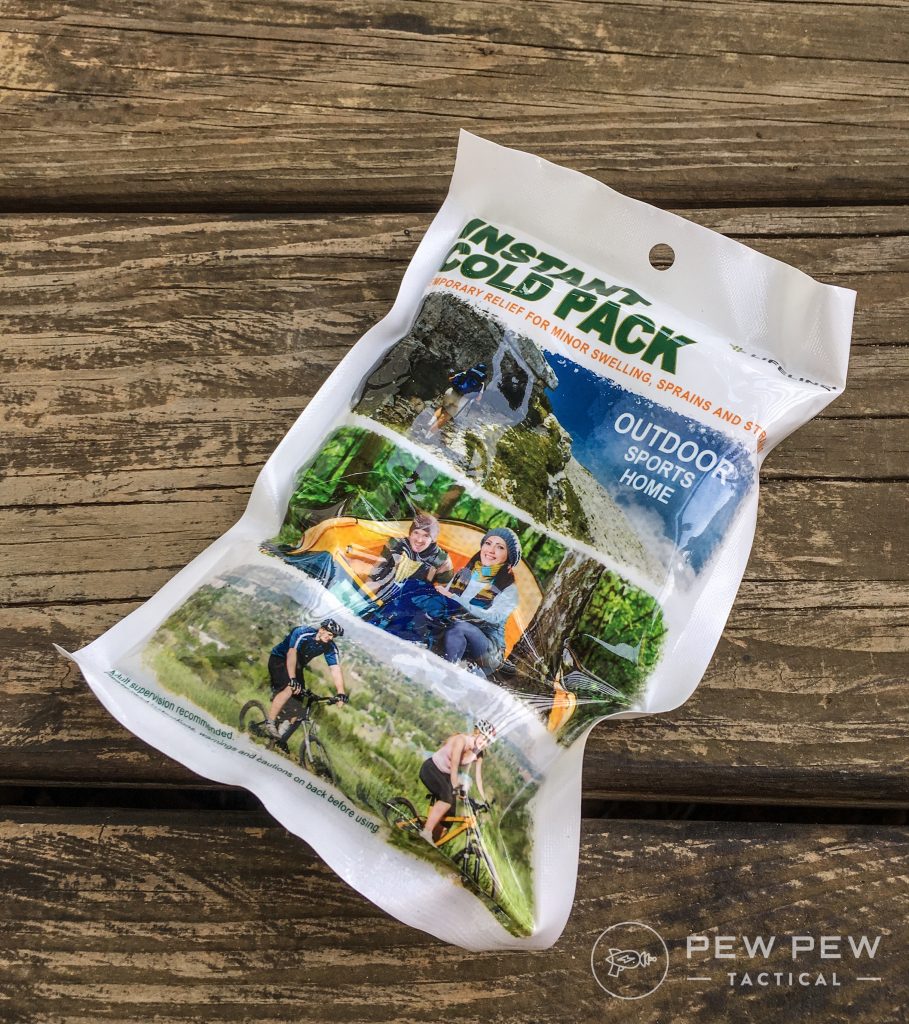
So, whether we’re talking about a little kid who took a baseball to the shin during a T-ball game, or somebody who just sprained an ankle, these are an instant win.
Prices accurate at time of writing
Prices accurate at time of writing
-
25% off all OAKLEY products - OAKLEY25
Copied! Visit Merchant
11. An ACE Wrap
Ace Wraps (or other elastic bandage) make great makeshift splints until you can get something better.
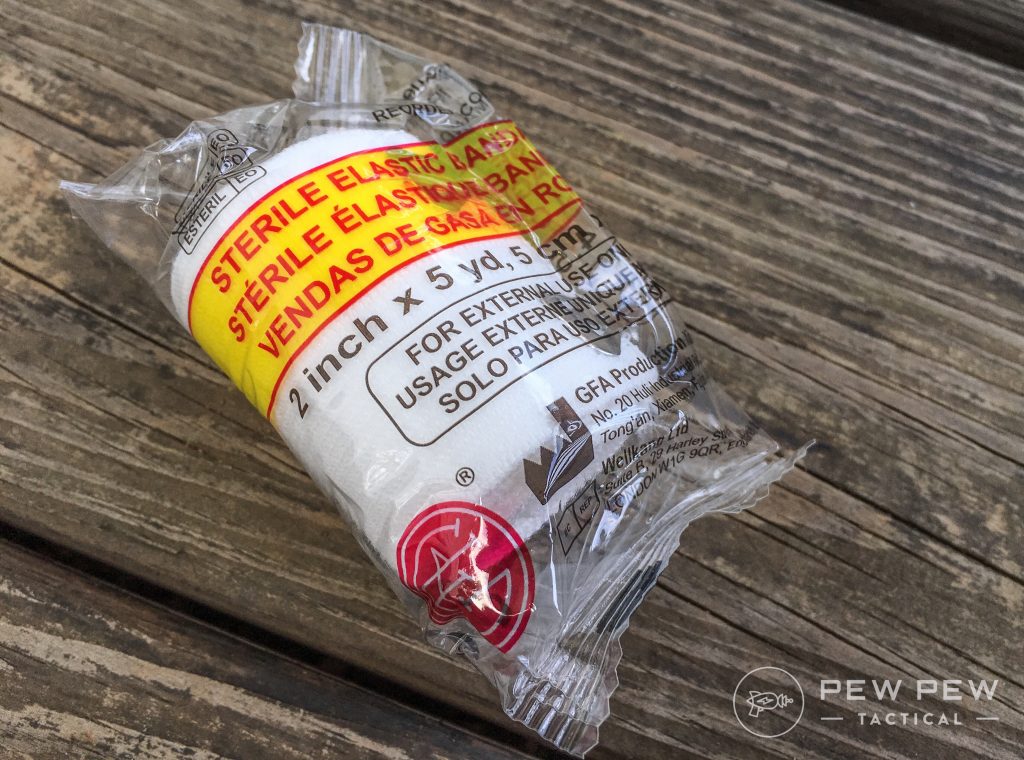
I learned about the virtues of these living with an athletic trainer back in college and have since gotten the chance to use these on a couple of injured ankles.
They’re a good multi-purpose tool to keep ready for the inevitable joint injuries.
-
25% off all OAKLEY products - OAKLEY25
Copied! Visit Merchant
12. Alcohol Wipes
They sting, so I don’t use alcohol pads on the kiddos if I can help it. But for me, they’re fair game.
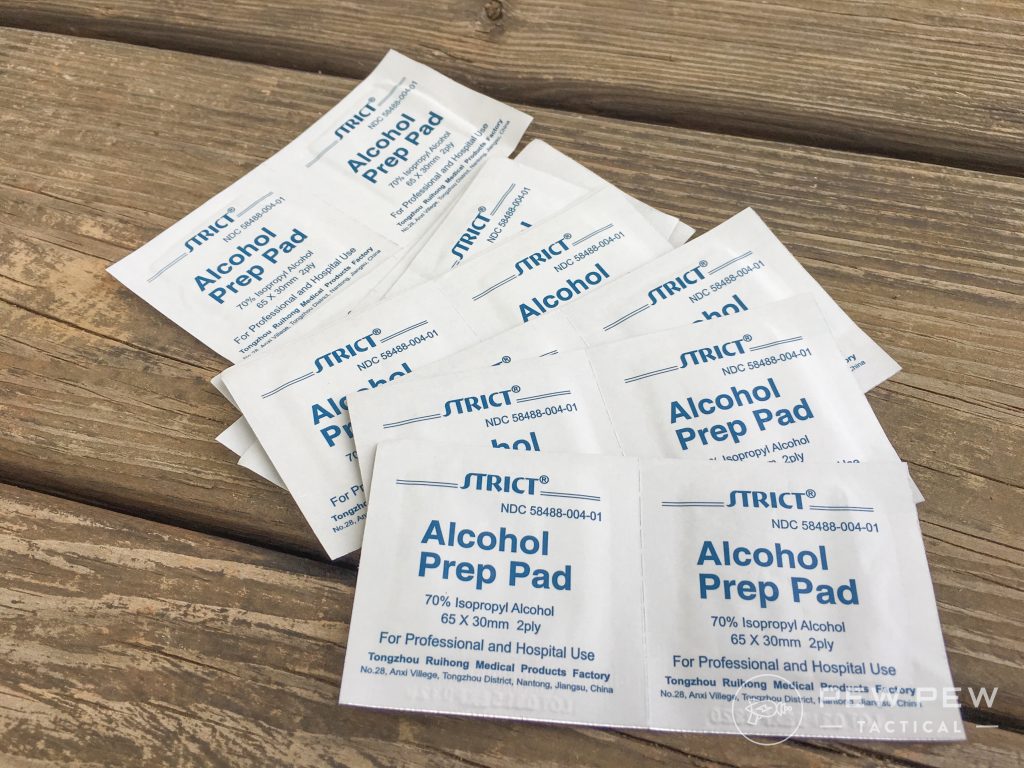
For a cut, I want to clean quickly without worrying about a goopy Neosporin mess; it gets hit with an alcohol wipe. I always keep several of these within the kit.
-
25% off all OAKLEY products - OAKLEY25
Copied! Visit Merchant
I don’t have the following items in my current kit, but I think they’d make excellent additions to a car first aid kit.
13. QuikClot
If you’re having trouble stopping bleeding, QuikClot can help.
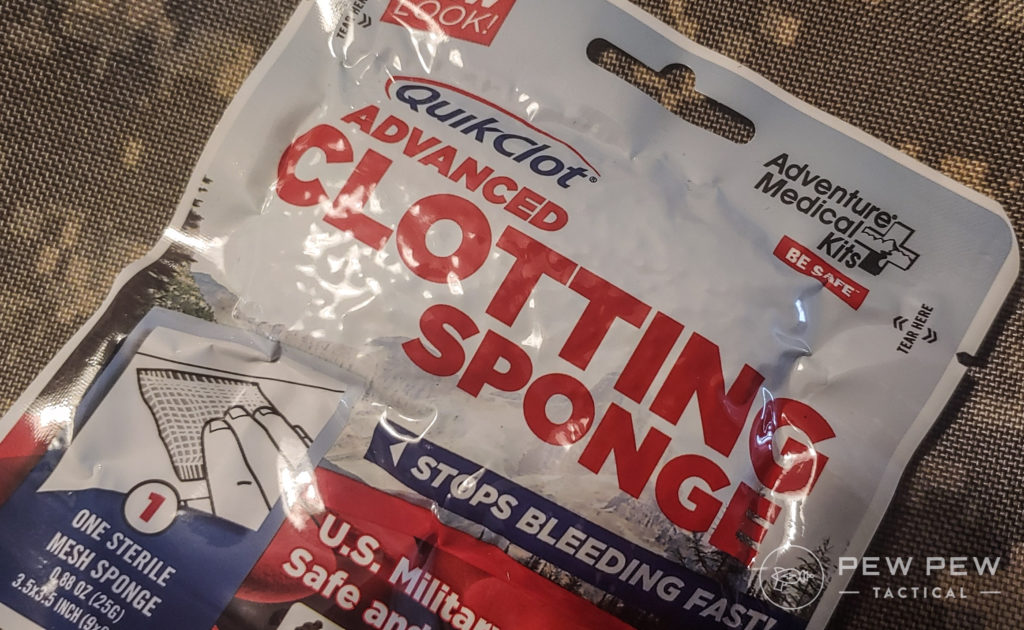
I can tell you from experience that a very large segment of the senior population is on blood thinners, and when they get cut – even a little – they bleed like crazy.
QuickClot can help to get these annoying little bleeds to stop in record time.
Prices accurate at time of writing
Prices accurate at time of writing
-
25% off all OAKLEY products - OAKLEY25
Copied! Visit Merchant
14. Medical Scissors
Medical scissors are beneficial for many situations (though at my job, it was mainly for AED use).
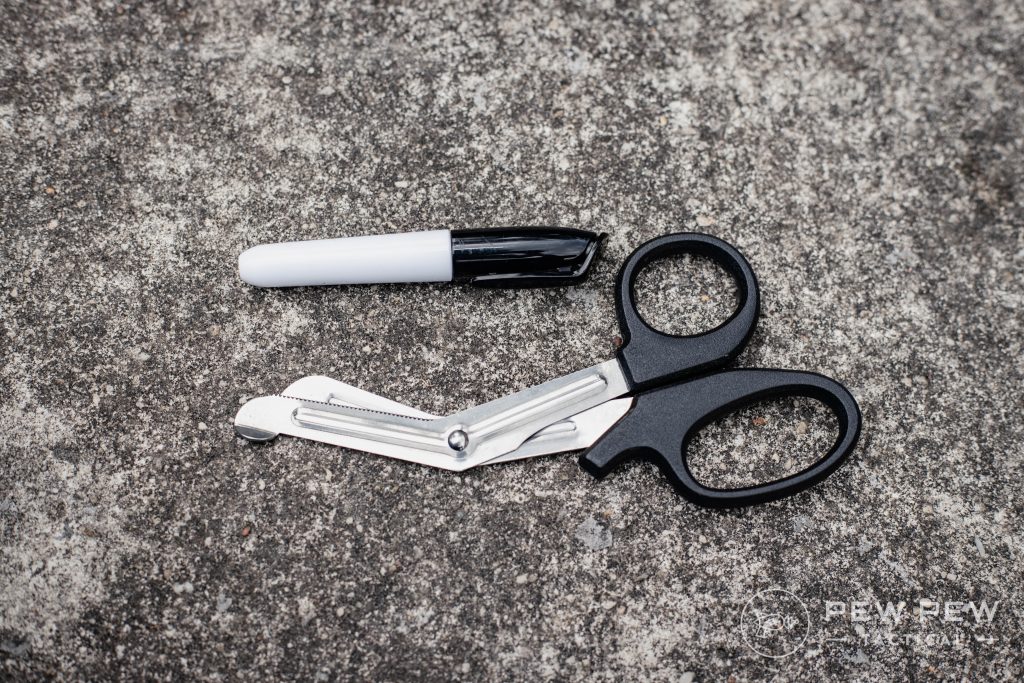
And after listening to James at Prepper Broadcasting Network, I’m becoming more convinced that these should earn a place in an IFAK in the event of some type of shooting. Just a thought.
Prices accurate at time of writing
Prices accurate at time of writing
-
25% off all OAKLEY products - OAKLEY25
Copied! Visit Merchant
15. Aluminum Roll Splint
These are pretty fancy, and I’d love to include one within my kit.
An Aluminum Roll Splint means you can easily make a fast splint for a musculoskeletal issue with little fuss.
-
25% off all OAKLEY products - OAKLEY25
Copied! Visit Merchant
16. Tourniquets
I think a car kit is a perfect place to have one or two of these. I’ve had friends who are alive today because of tourniquet use.
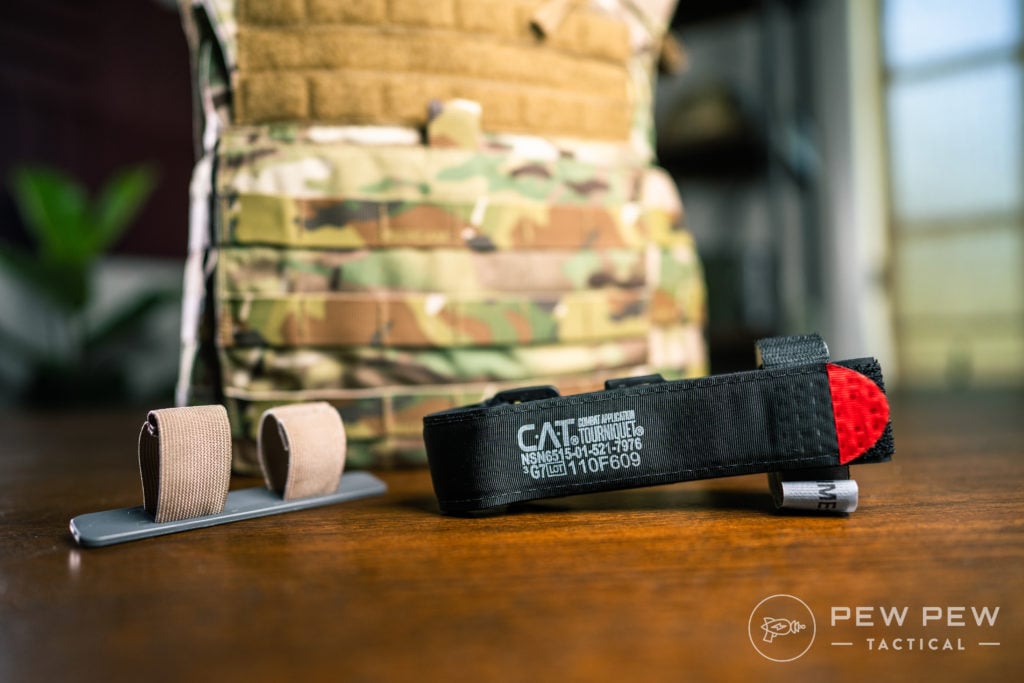
Tourniquets are used to stop massive bleeding — think, bleeding so bad that pressure just doesn’t work.
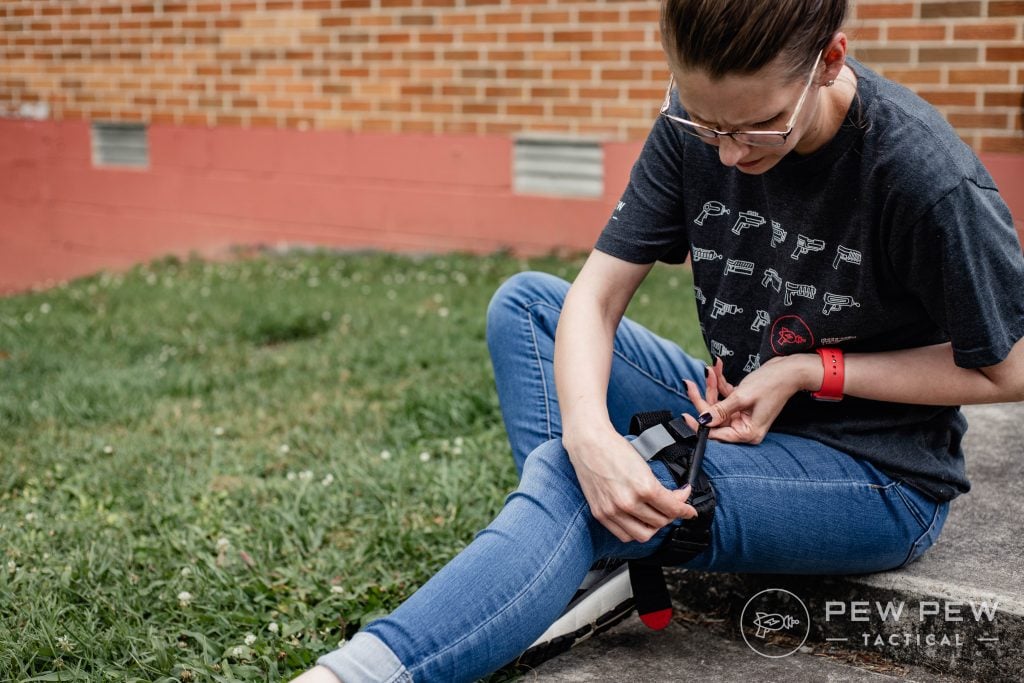
If you shoot, you need one of these in your range kit and your car.
Prices accurate at time of writing
Prices accurate at time of writing
-
25% off all OAKLEY products - OAKLEY25
Copied! Visit Merchant
17. HyFin Vent Chest Seal
Hopefully, a Hyfin Vent Chest Seal is something you would never have to use, but I’d rather have something and let it sit than not need it when it could easily help save a life.
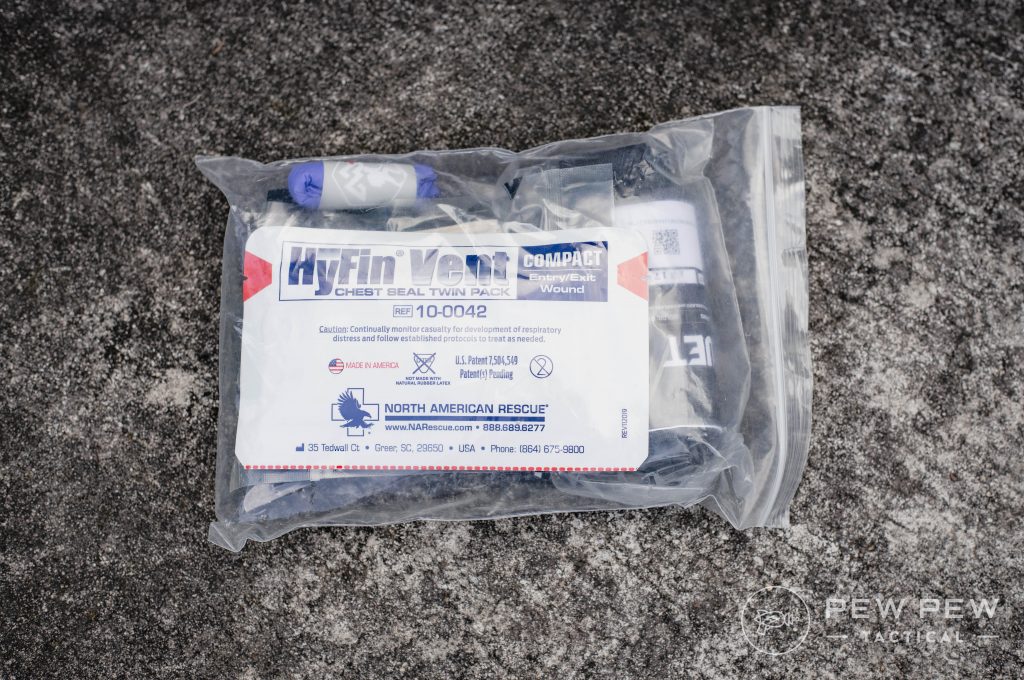
These work great to help sucking chest wounds – injuries you often see in shootings.
I haven’t added these yet, but two of them will probably be the next addition.
Prices accurate at time of writing
Prices accurate at time of writing
-
25% off all OAKLEY products - OAKLEY25
Copied! Visit Merchant
18. CPR Mask
A last-minute addition from our editor, Jacki, she thinks a CPR mask/face shield in a car kit is a great idea.
Even better, these are keychain size so toss one onto your first aid bag or even your keyring.
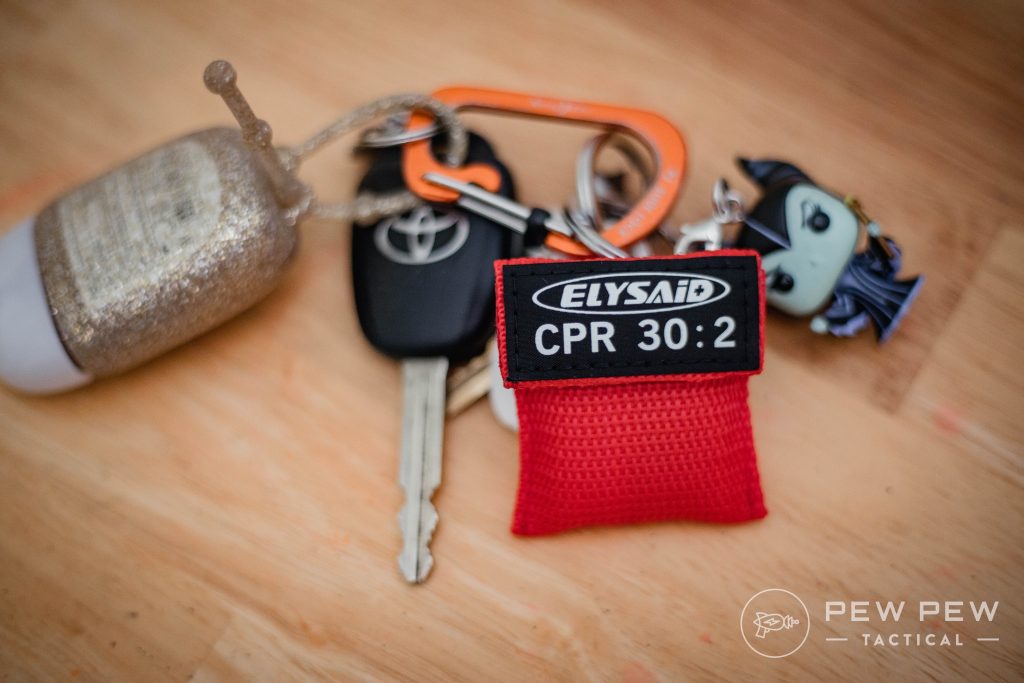
If you’re CPR trained, you still want to protect yourself while helping someone and a CPR mask is a great way to do this.
It provides a barrier between you and the victim as you give rescue breaths.
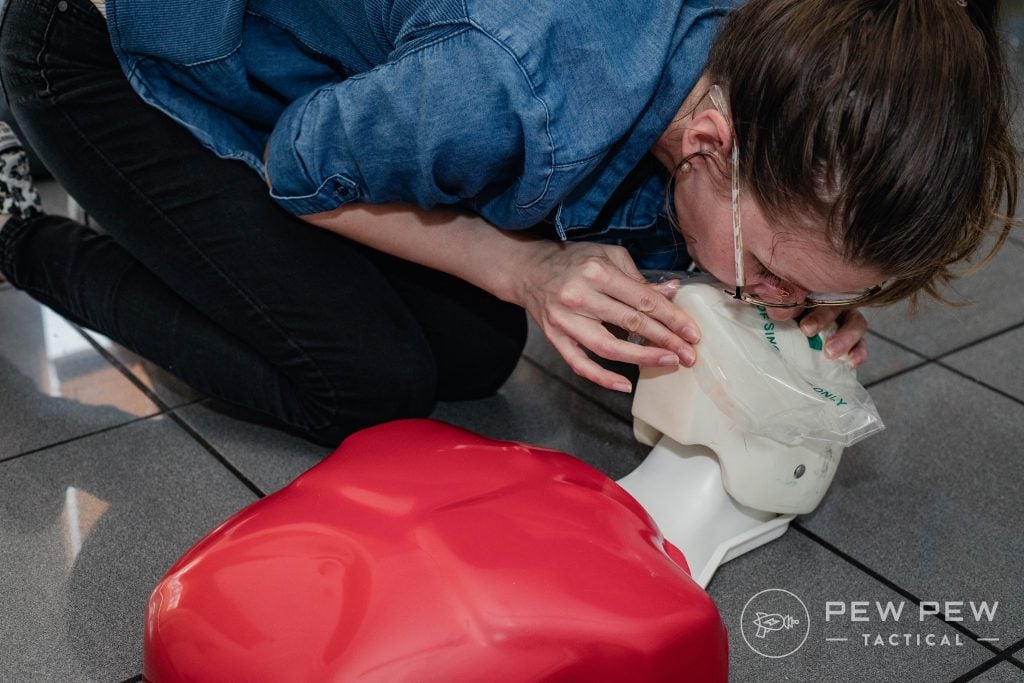
Any means to keep yourself safe while you render aid is just good for everyone.
Check out our entire article dedicated to the Best CPR Masks and Face Shields.
-
25% off all OAKLEY products - OAKLEY25
Copied! Visit Merchant
How to Build Your Own At-Home First Aid Kit
My at-home first aid kit is a bit more comprehensive than what I carry within my vehicle. It’s here that I keep what I would need to handle bigger DIY first aid issues.
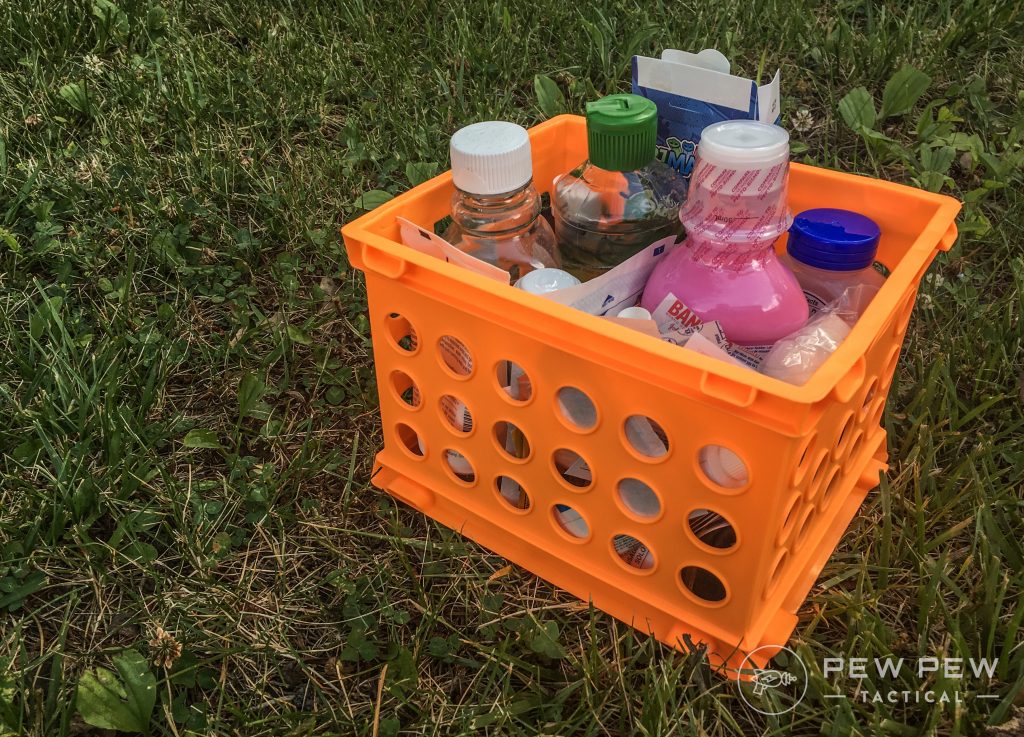
I consider it something of my base camp.
All the goodies from the car kit are already included, plus several other items that could help within a medical situation.
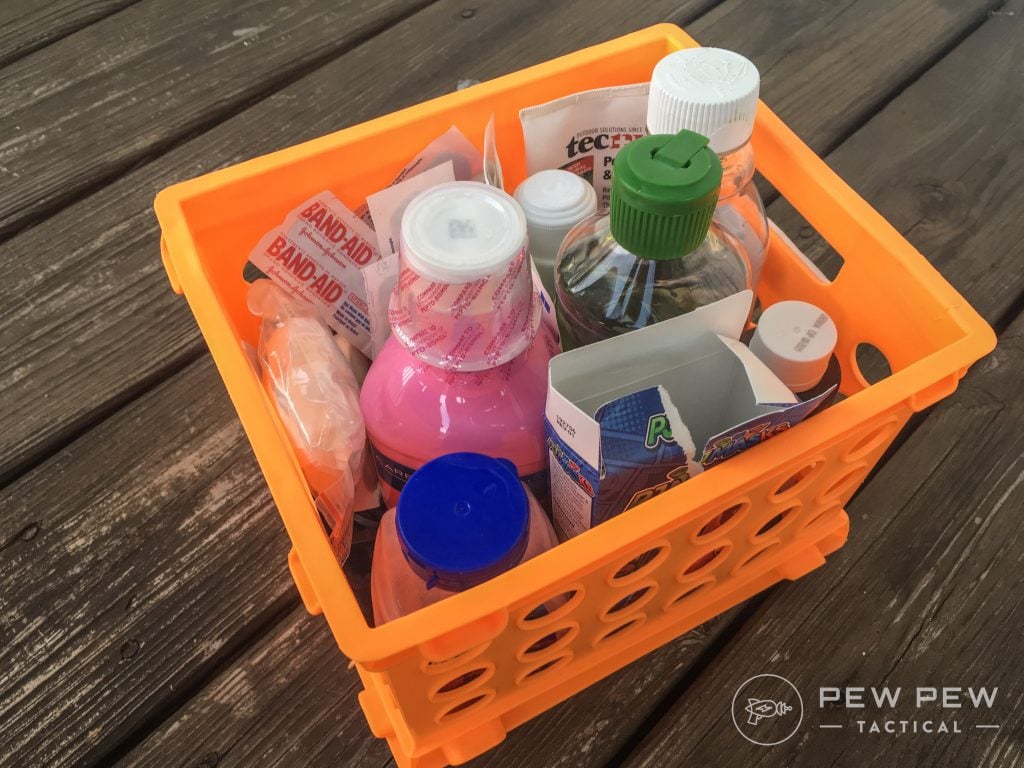
19. BioFreeze
For bad muscular aches and pains, this goopy gel works wonders.
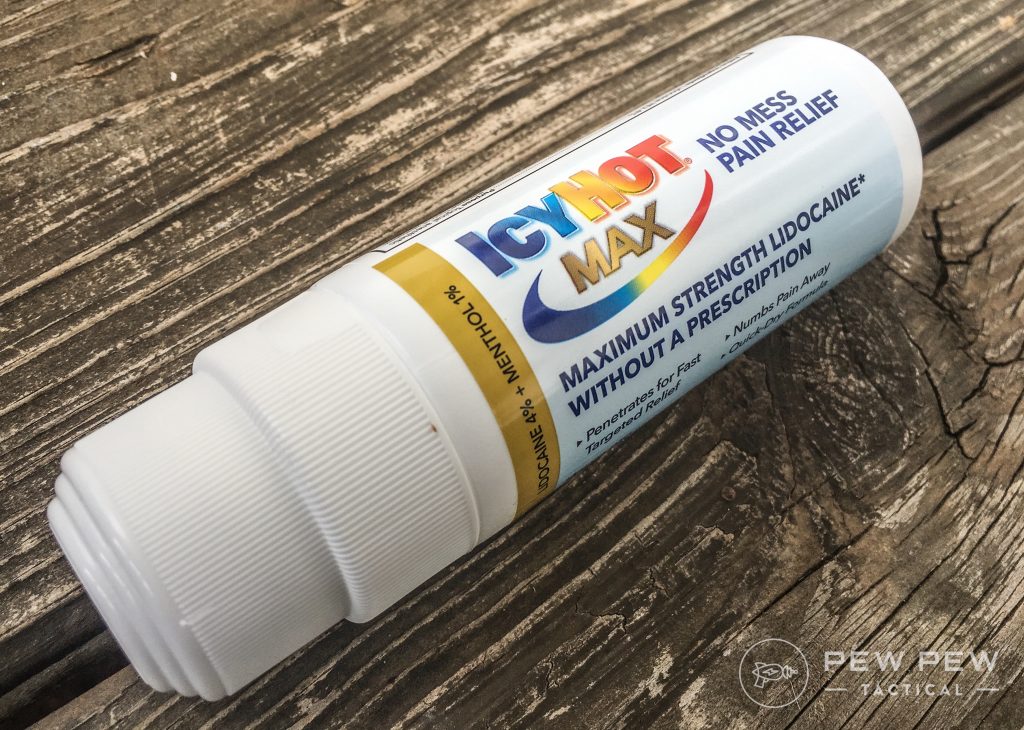
If you can’t find BioFreeze, I think IcyHot works just as well.
-
25% off all OAKLEY products - OAKLEY25
Copied! Visit Merchant
20. A Variety of Splints/Braces
I’ve slowly collected a variety of splints over the years as obnoxious injuries have come and gone.
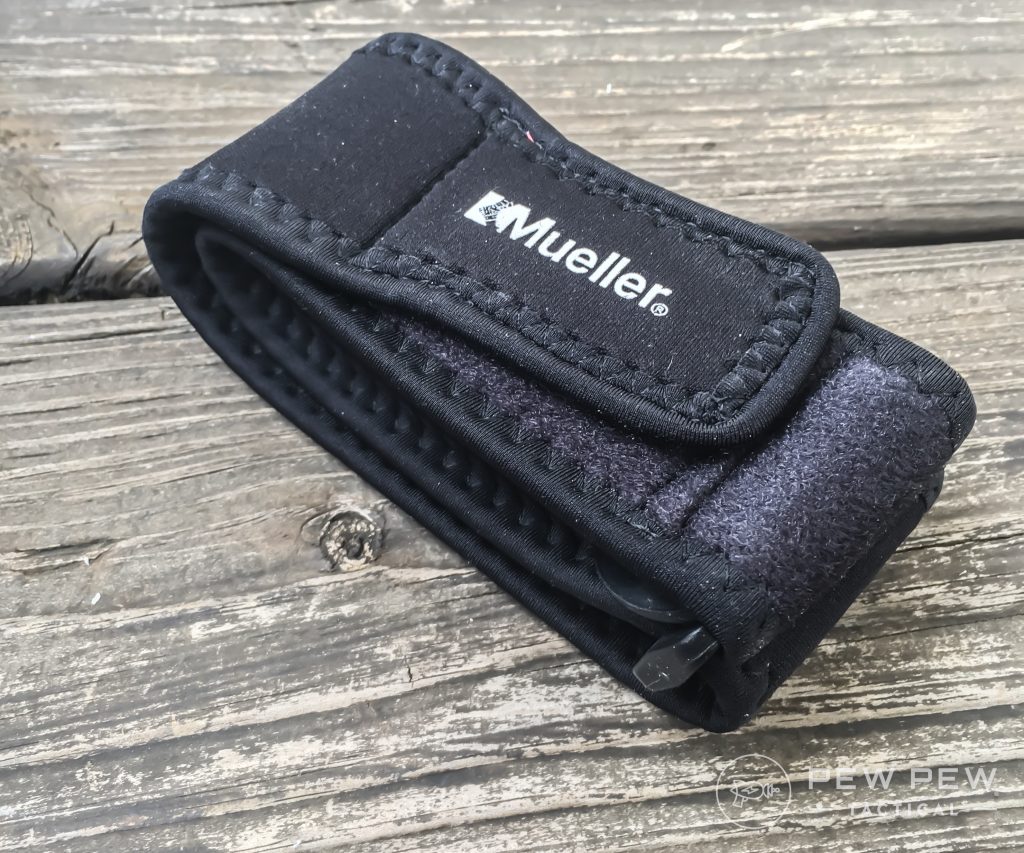
After I heal up, I keep the splints just in case I ever need one again.
21. Isopropyl Alcohol
This stuff burns, but if there’s an instance where I want to know that I’ve killed 100% of the germy bad guys hanging around an injury, I use Isopropyl Alcohol.
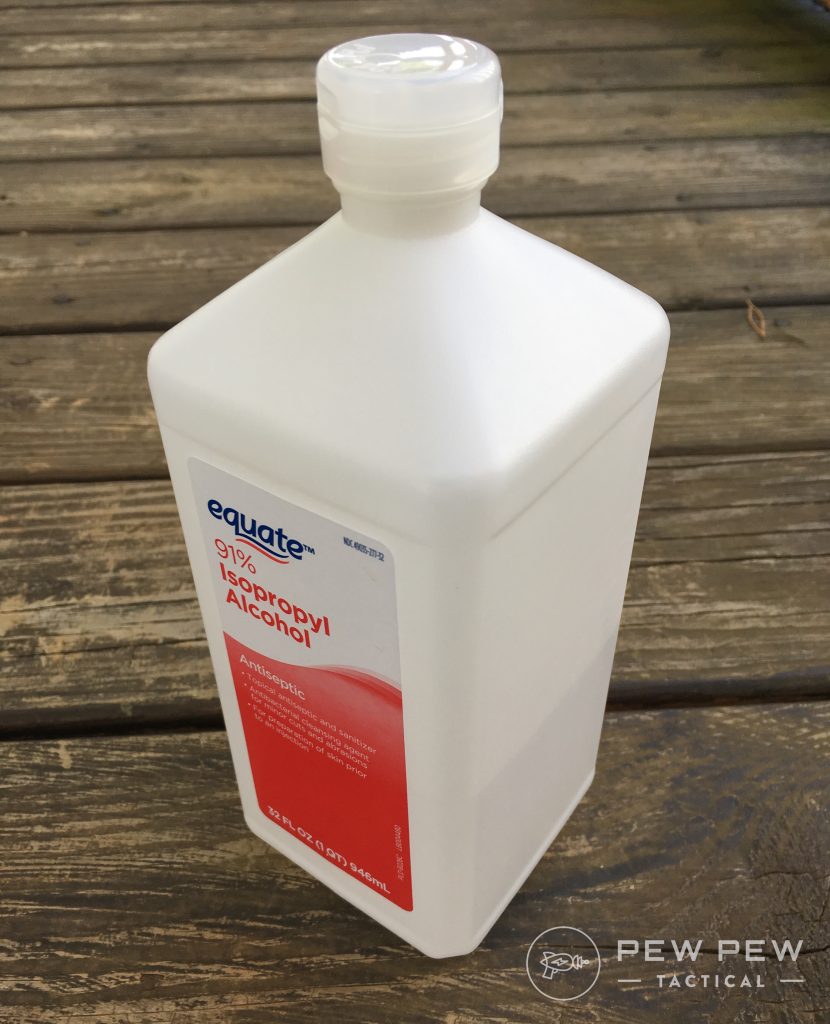
I buy as high strength of alcohol as possible, and I’ve found you pay less per ounce when you just pay for the bigger bottles.
-
25% off all OAKLEY products - OAKLEY25
Copied! Visit Merchant
22. Hydrogen Peroxide
Hydrogen peroxide is my go-to if there’s a little one around my house that needs some type of cut or abrasion rinsed out.
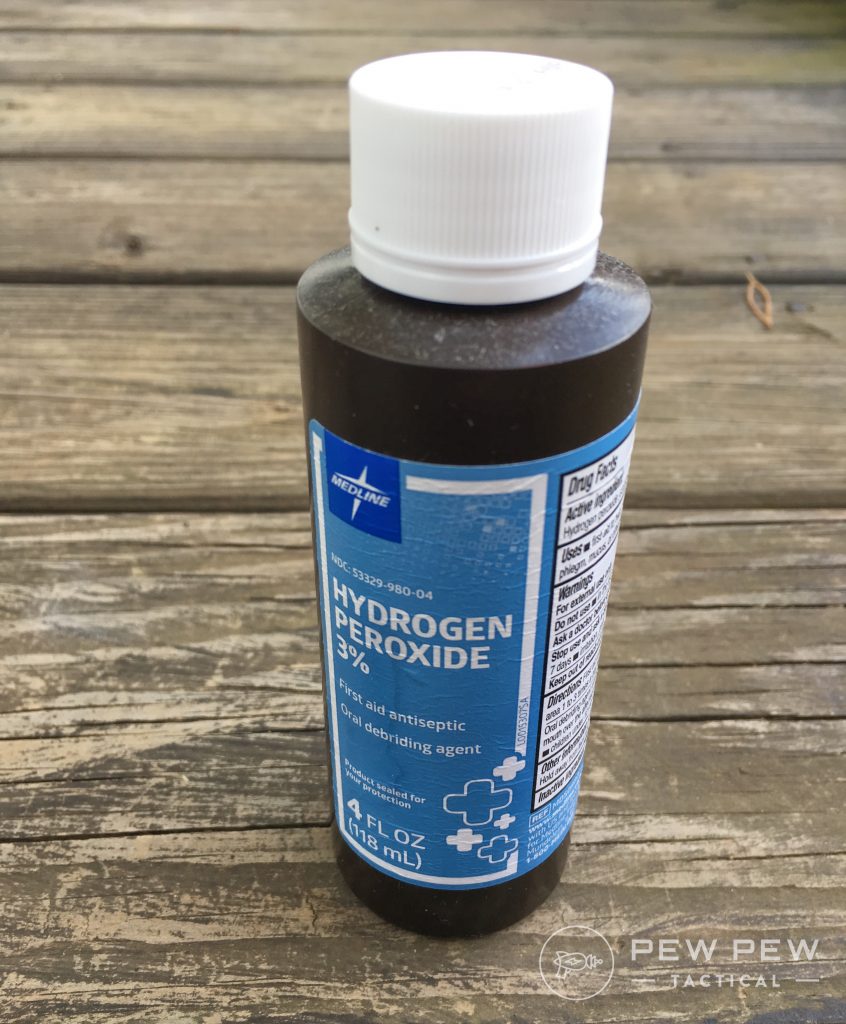
It doesn’t sting anywhere near as bad as rubbing alcohol does yet still makes for a great form of antiseptic.
Once again, I think the best deals come with the bigger bottles.
-
25% off all OAKLEY products - OAKLEY25
Copied! Visit Merchant
23. Tecnu Poison Ivy Scrub
It can be hard to retrieve your best disc golf putter without ending up in a patch of poison ivy.
For when that happens, you need something to get the oils off as quickly as possible. Tecnu Poison Ivy Scrub little help you do just that!
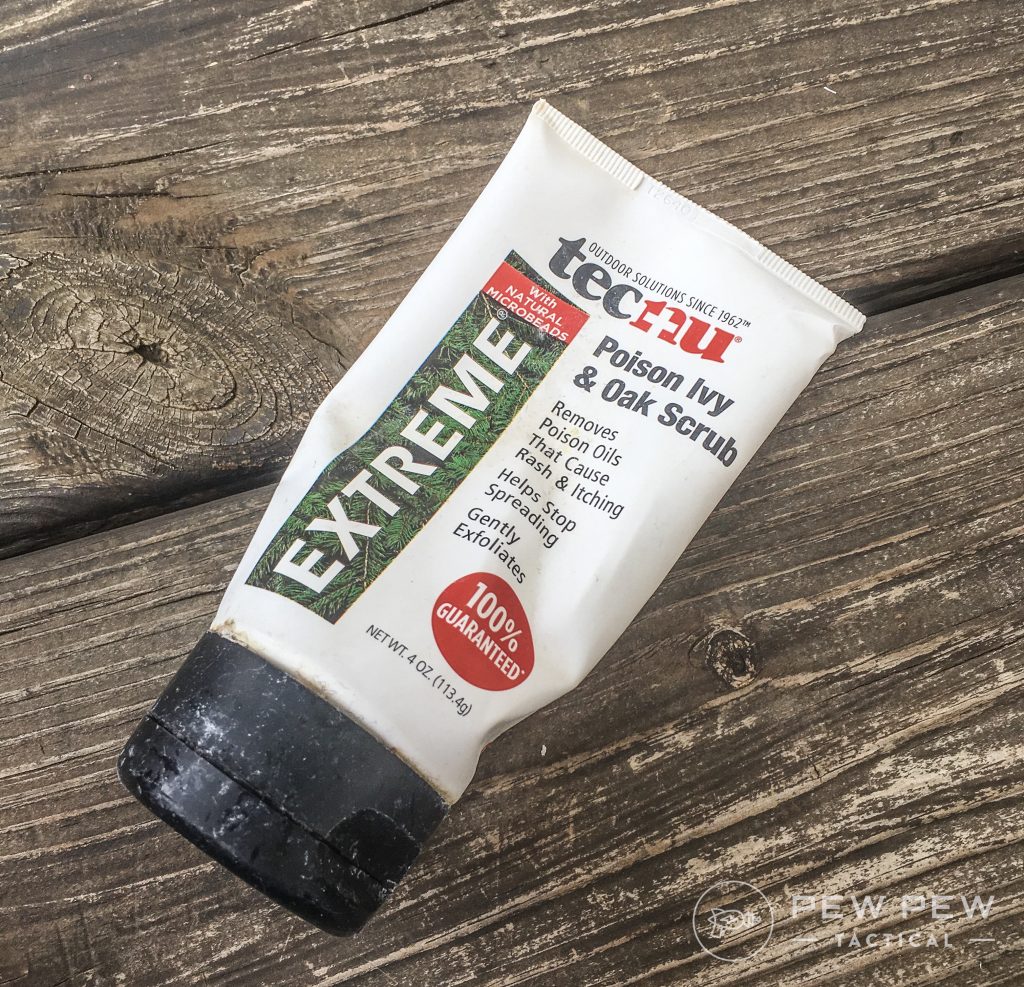
That way, you can ensure itchy oils don’t spread further over your skin, causing the very near future to be that much worse.
This is one item that I am more than happy to pay a higher price for. I’ve no problem buying bargain brand medical supplies, but I make an exception for poison ivy.
-
25% off all OAKLEY products - OAKLEY25
Copied! Visit Merchant
24. Aloe Vera
I always make sure that I have some type of burn gel at my house.
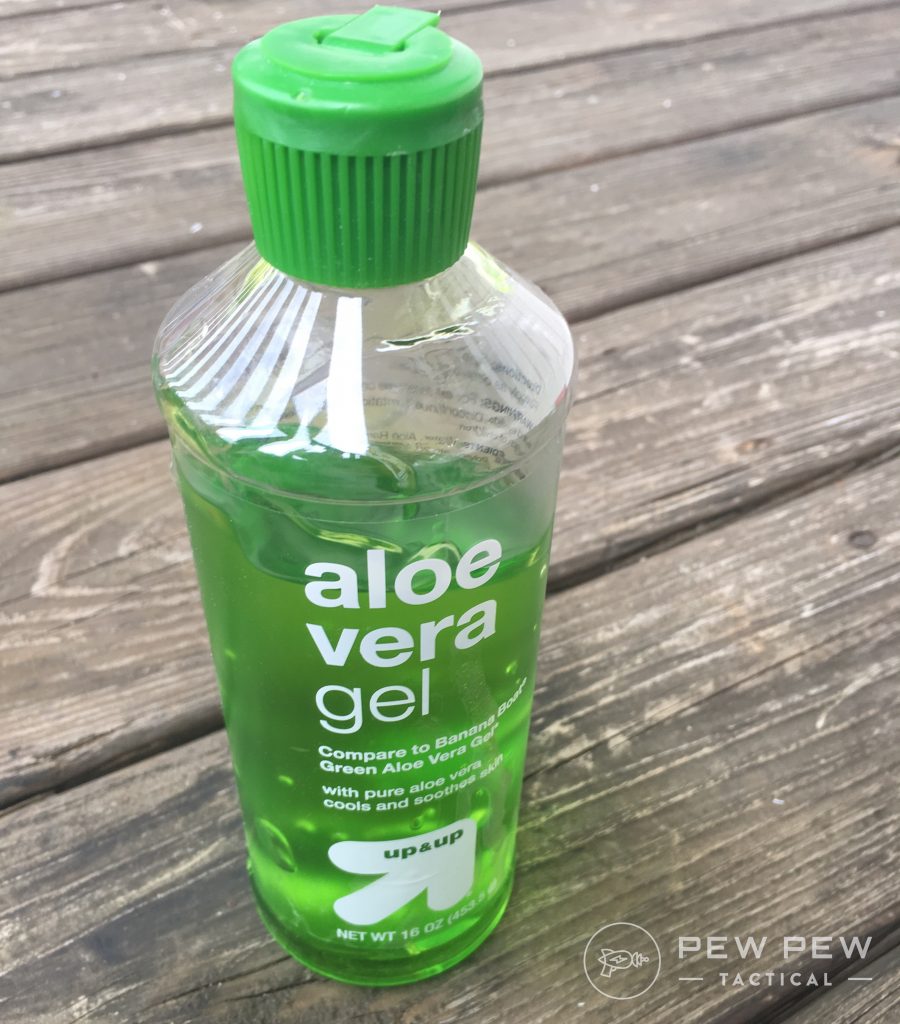
In my own history, home is where the majority of my burns occur. A little aloe vera helps take the edge off yet another burn you received from the stove.
-
25% off all OAKLEY products - OAKLEY25
Copied! Visit Merchant
25. Assorted Medicines
While I think there’s something to be said for making a distinction between a medicine cabinet and an at-home first aid kit, there are three big medicines I always keep in my kit at home.
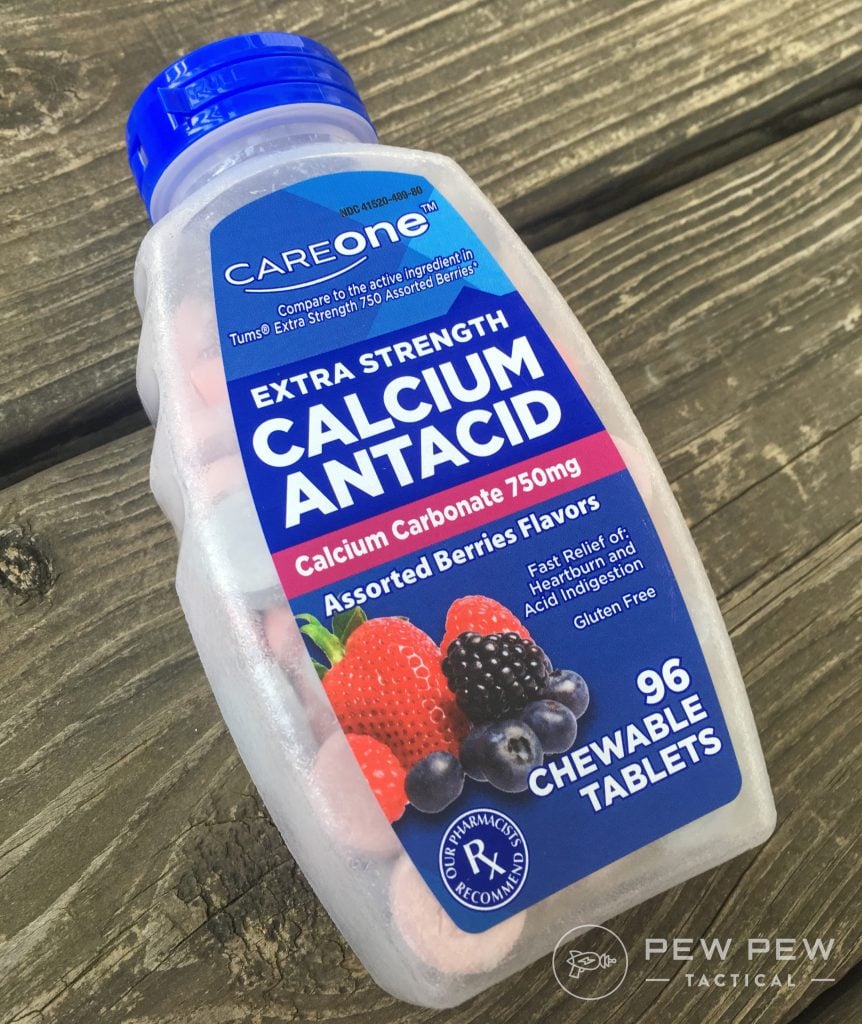
- Nyquil – If you ask me, this is the best stuff I’ve ever taken for a cold. It conks me out and lets me sleep.
- Pepto Bismol – I keep this in my office first aid kit as well (albeit in pill form). This is something that you don’t want to begin a search for once you need it. I think it works great for any form of stomach upset.
- Tums – This is probably one of the most oft-asked for medications in your day-to-day life. I always keep some in my kit at home perchance a guest ends up needing them.
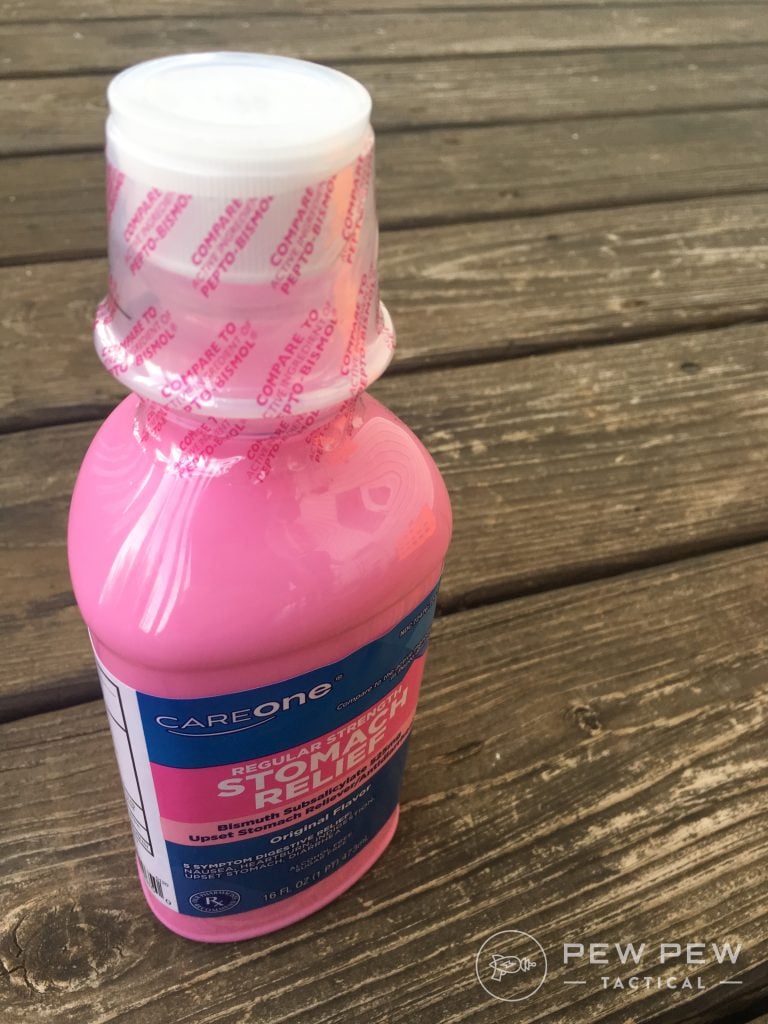
26. Hydrocortisone Cream
If I find myself in a world of suck due to poison ivy, hydrocortisone cream is just about the only thing that helps.
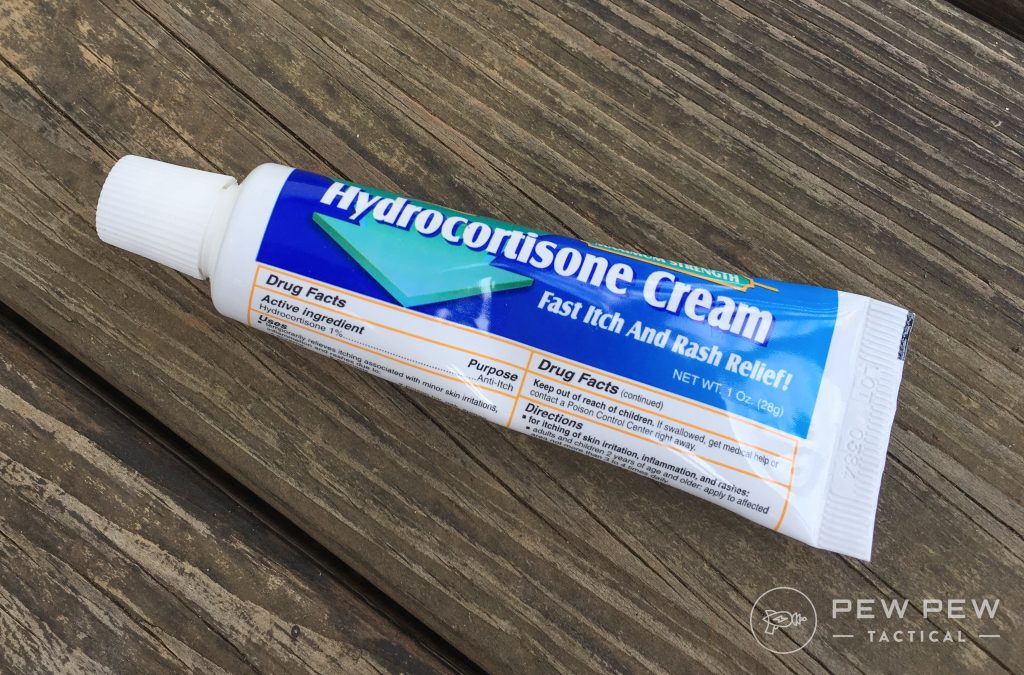
I’ve tried everything in the past, and this is hands down the best itch relief on the planet.
-
25% off all OAKLEY products - OAKLEY25
Copied! Visit Merchant
Conclusion
A first aid kit is essential, and I think it’s vital to keep one in both your car and home.
Yes, you can buy a pre-built kit. However, making one yourself, you’ll know exactly what you have, what you don’t, and you won’t waste time rummaging through a bag looking for what you need.
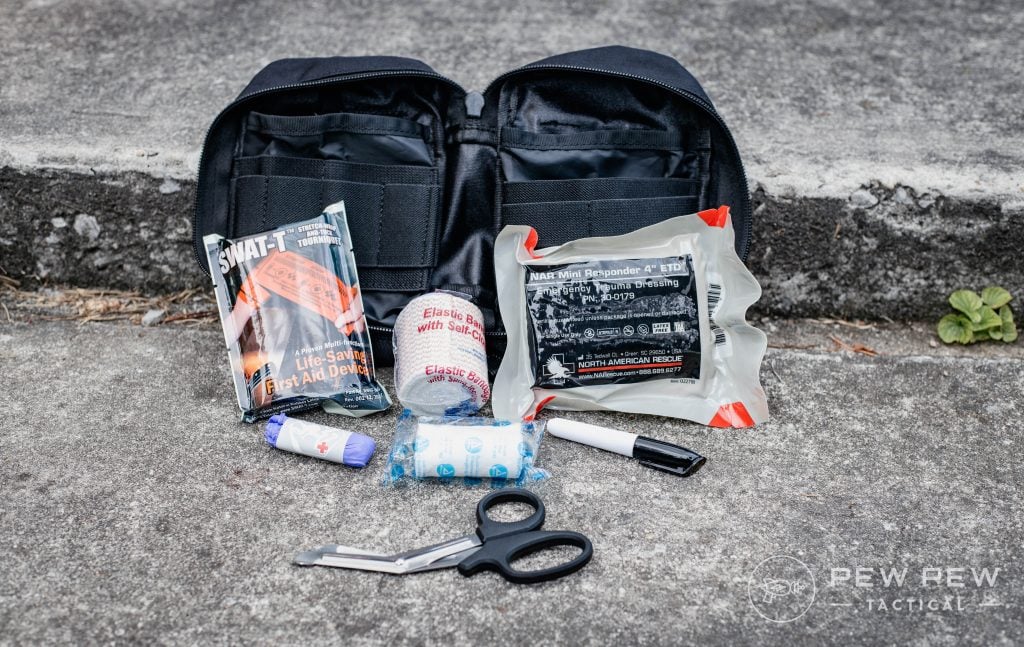
While this article serves as a starting point, don’t be afraid to get creative when DIYing your own first aid kit. There’s undoubtedly other stuff that would be useful for your own purposes.
Tailor your kit to your own needs, levels of training, and what you deem to be the greatest possibilities.
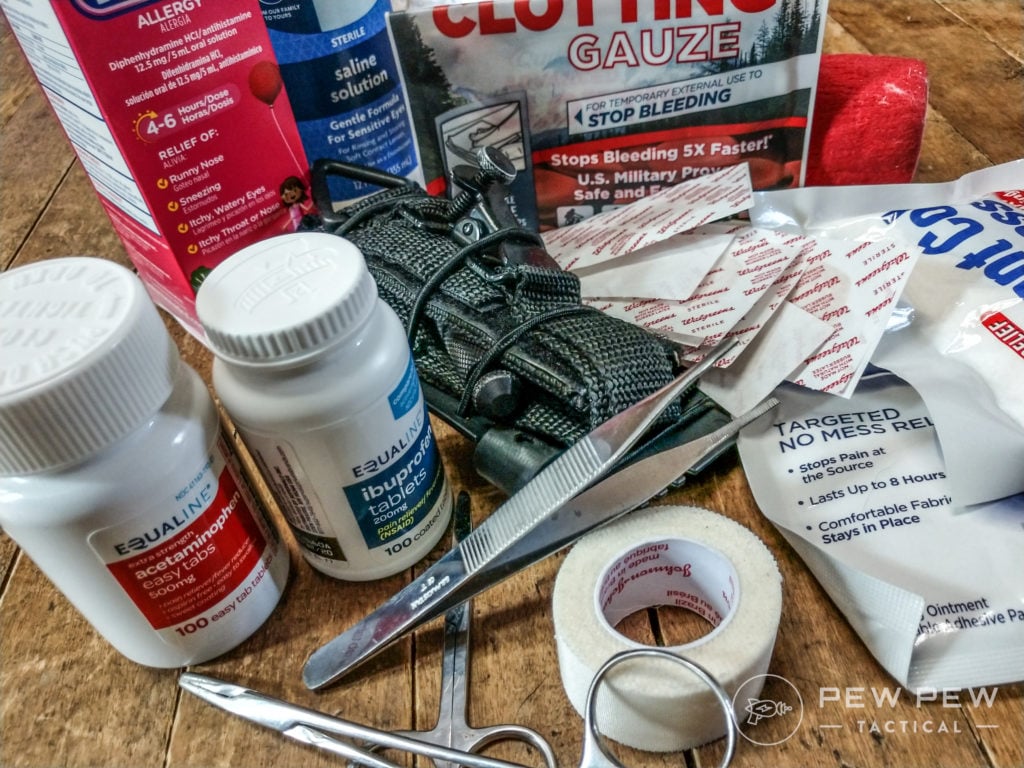
What else would you add to your own DIY first aid kit? Let us know in the comments below! Ready to add some training to all that gear? Check out our recommendations on the Best First Aid Classes.

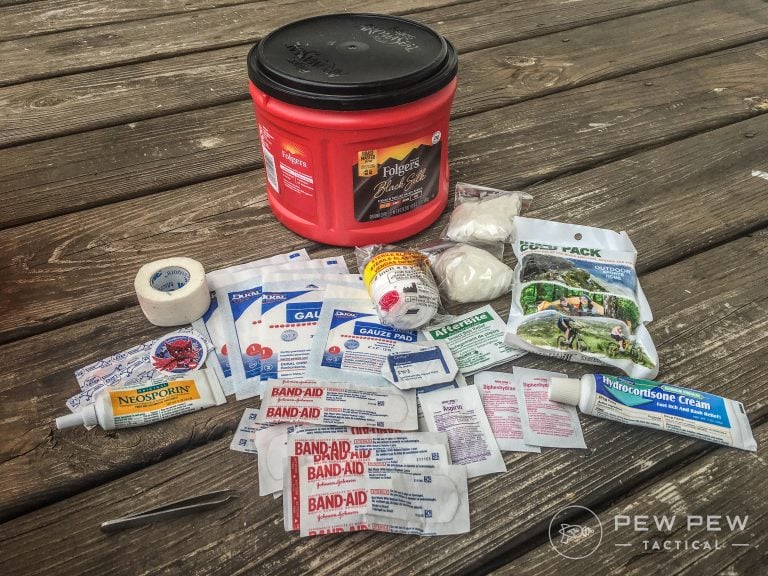





























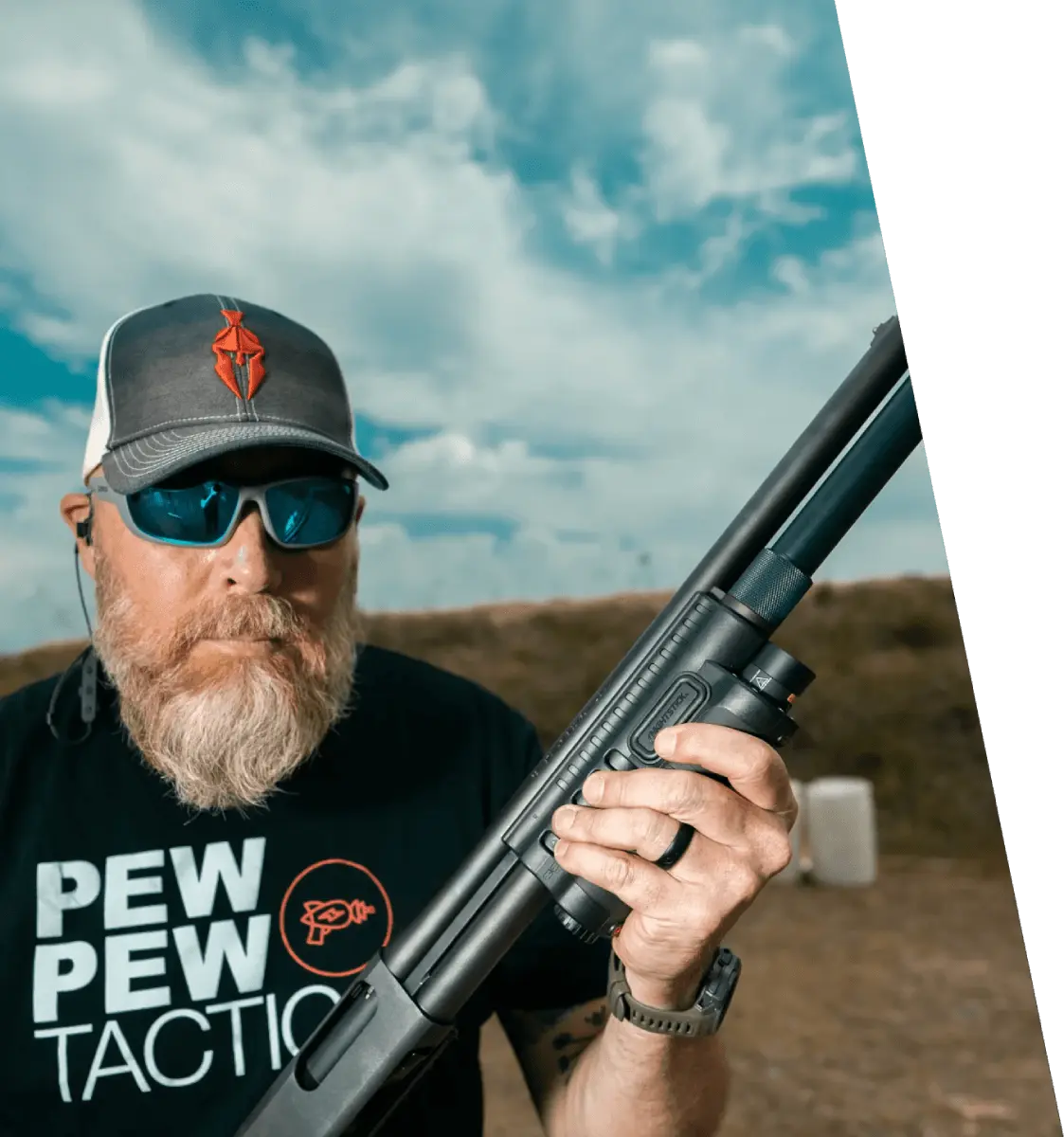

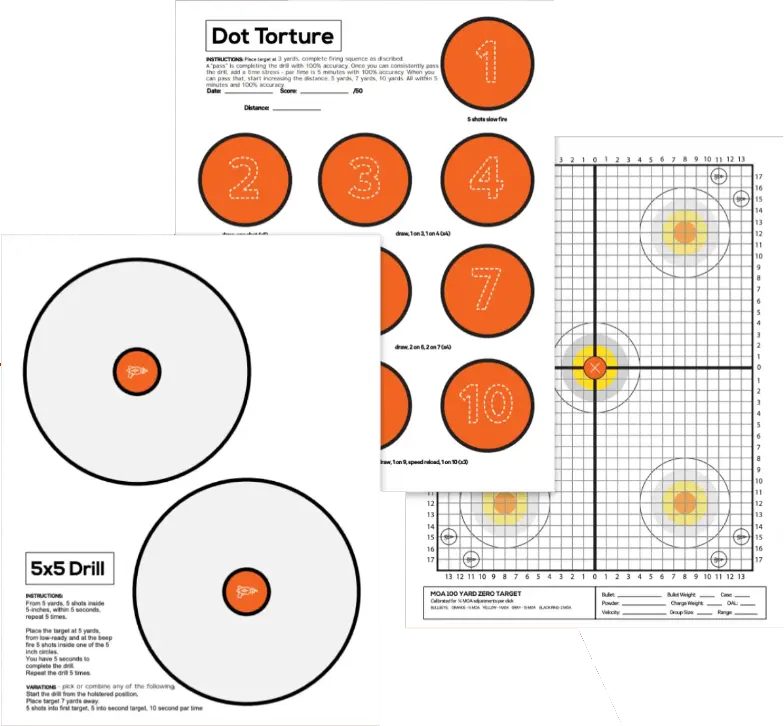
13 Leave a Reply
Tecnu is just GoJo in a smaller more expensive container. Great for the car kit, but slather the GoJo on if you’re able. Very informative article.
Best homemade survival kit I have come across on the internet.
I especially am appreciative you took into account heat in a car and what not to include.
THANK YOU!
Outstanding! Thanks Tammy, we're glad you found the article useful.
Add NYCAN
Neosporin is great but can cause contact dermatitis and is not to be used around the nose and mouth. Use mupirocin/bacitracin for those areas instead.
For a more complete kit, add a blood pressure monitor and know how to use it and when. (remember batteries).
Also add a bottle of a buffered sterile ophthalmic solution eyewash. These come in various sizes, 32, 16, or 8 ounce bottle.
For our shtf home kit I also have a sterile suture kit.
You need to also carry Benadryl’s liquid form. Its going to start working faster than a pill, its easier and faster to get small kids with allergic reactions to take, and some people suffering allergic reactions can't swallow a pill very well or at all due to the effects of the allergic reaction with swelling of throat or tongue and the liquid will leak/flow past these.
We use a travel mug to hold the liquid benedryl, a smaller travel sippy mug without handle and with a screw on top and one of those pop up sipper things. One of those cheap give away plastic exercise water bottles works too. Place a sealed bottle (like it comes packaged) of Benadryl liquid in it and screw on the top. It protects the benedryl bottle against dings and bangs that will make it leak and if it does leak its not a mess all over everything.
I keep the liquid stuff at home for that reason, but I was concerned that high temps in the car might mess with it. Maybe I'm being paranoid on that one though.
That's a great tip with the travel mug for it and everything though. I'm gonna have to give it some thought.
For Benadryl liquid AND tablets avoid heat above 104 degrees F, so if you had tablets in the car fist aid kit you have the same issue with heat if it gets that hot in the car.
The recommend storage temp for Benadryl liquid or tablets ranges from 59 to 77 degrees F or 68 to 77 degrees F depending on the specific Benadryl product. But Benadryl liquid or tablets do not begin to be affected by heat until it gets over 104 degrees F.
We take our first aid kits out of the cars when we finish using the cars for the day in both summer and winter. So they are never really exposed to excessive heat or cold.
Oh also, with any product that contains Diphenhydramine (this is the active ingredient in Benadryl) make sure to have plenty of water available if you are going to give it to a person with an allergic reaction. Diphenydramine can reduce the ability to sweat and a person can overheat which can result in cramps, exhaustion, and heat stroke. So throw a few bottles of bottled water in your first aid kit, and heck if you need to and use a non-bottled water source you can use that sippy cup you kept the Benadryl in.
Hello! Please also consider adding Betadine; burn gel (in supplement to Aloe Vera gel); and small packets of granulated Celox (I prefer Celox over Quik-Clot).
Thank you for writing this article! It was easily understood, explained all choices made for each item, and nicely distinguished both the differences and the reasons for them in the division of Car Kit and Home Kit contents.
I think you're right on with the Celox. I've actually recently been looking at adding that in there.
Burn gel is another item on my list. I've got some little burn gel wipes, but I was looking at some dressings as well maybe.
Duct tape and maxi pads with some iodine/Benadryl and band aids. That should cover it.